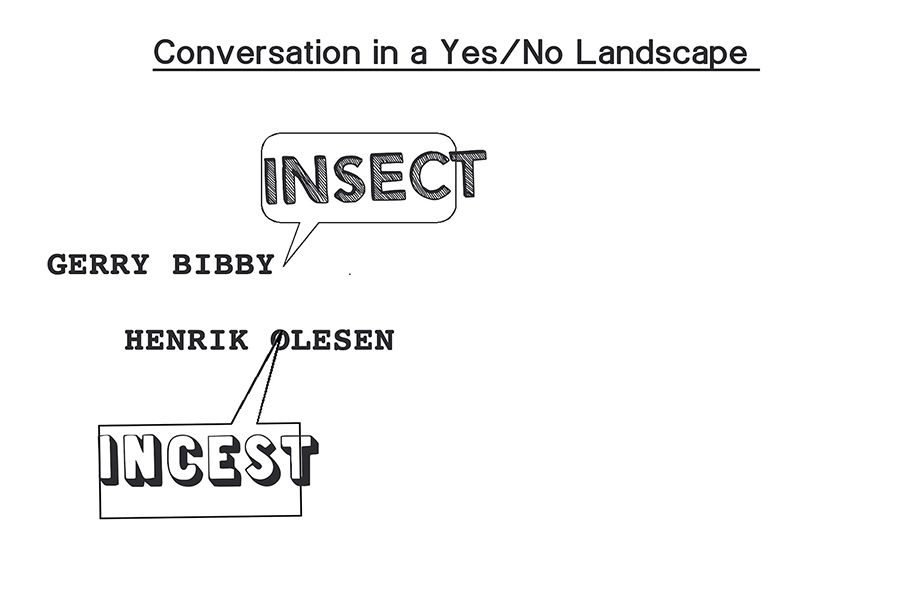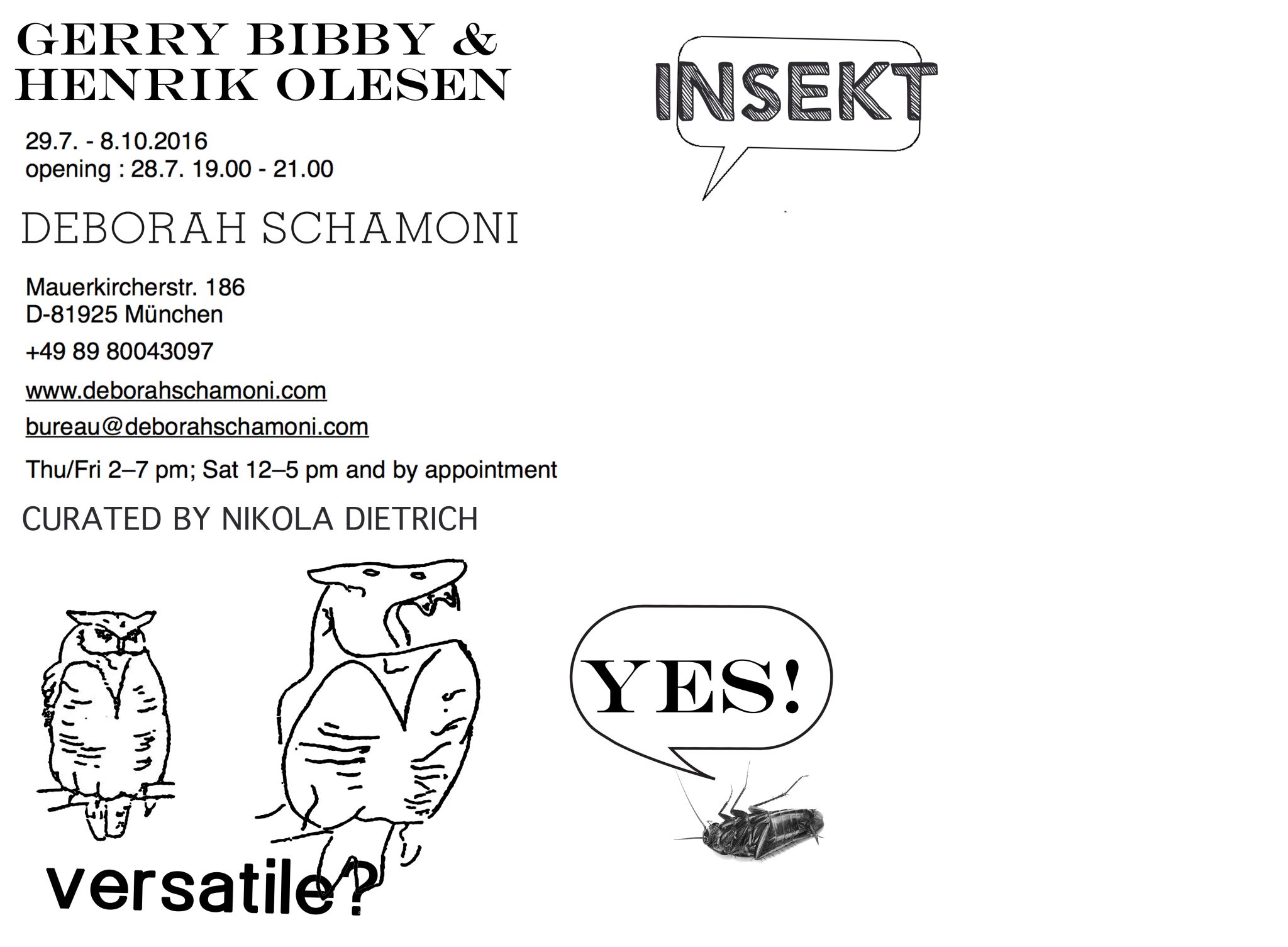-
Insect Incest
read more
This exhibition is the first time Gerry Bibby and Henrik Olesen have collaborated after beginning a few months ago in Porto. It now continues in the gallery Deborah Schamoni. As part of a longer process, the works have been developed for different scenarios embedded in a particular Yes/No Landscape. Within these various constructed social-landscapes, images were created that follow direct or fictional-narrative traces and signs. -
Insect Incest
read more
Gerry Bibby und Henrik Olesen arbeiten zum ersten Mal an einer Ausstellung zusammen, die in Porto vor einigen Monaten ihren Anfang nahm. Nun wird sie in der Galerie von Deborah Schamoni fortgesetzt. In einem längeren Prozess sind Werke entstanden, die sich in unterschiedliche Szenarien in eine bestimmte Yes/No Landschaft einbetten lassen. Innerhalb dieser verschieden konstruierten Sozial-Landschaften sind Bilder entstanden, die den unmittelbaren oder fiktional-narrativen Spuren und Zeichen folgen.
Wednesday – Friday 12 – 6 pm
Saturday 12 – 4 pm and by appointment
Gerry Bibby
Henrik Olesen
Conversation in a Yes/No Landscape
Curated by Nikola Dietrich
29.07. – 08.10.2016
-
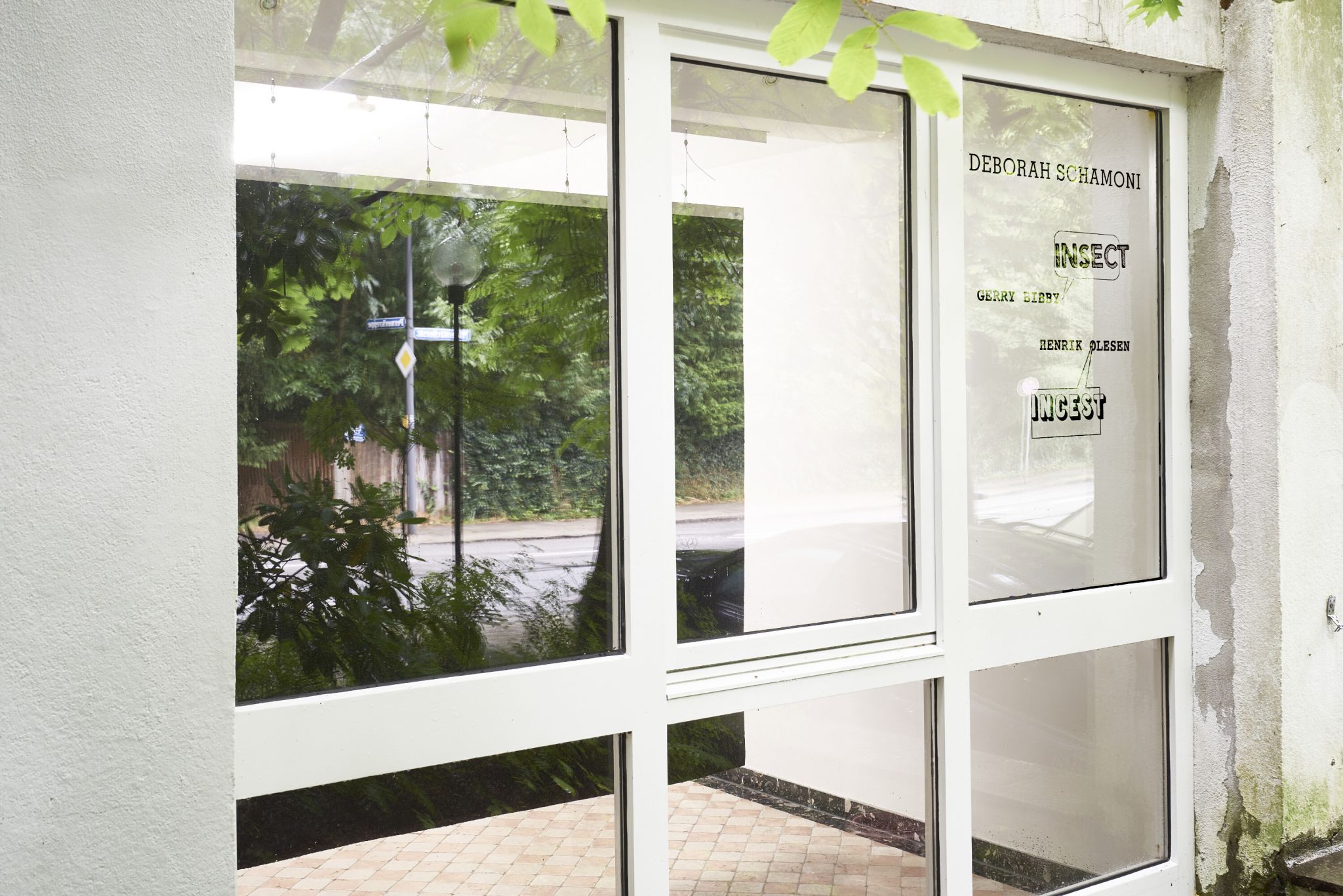
-
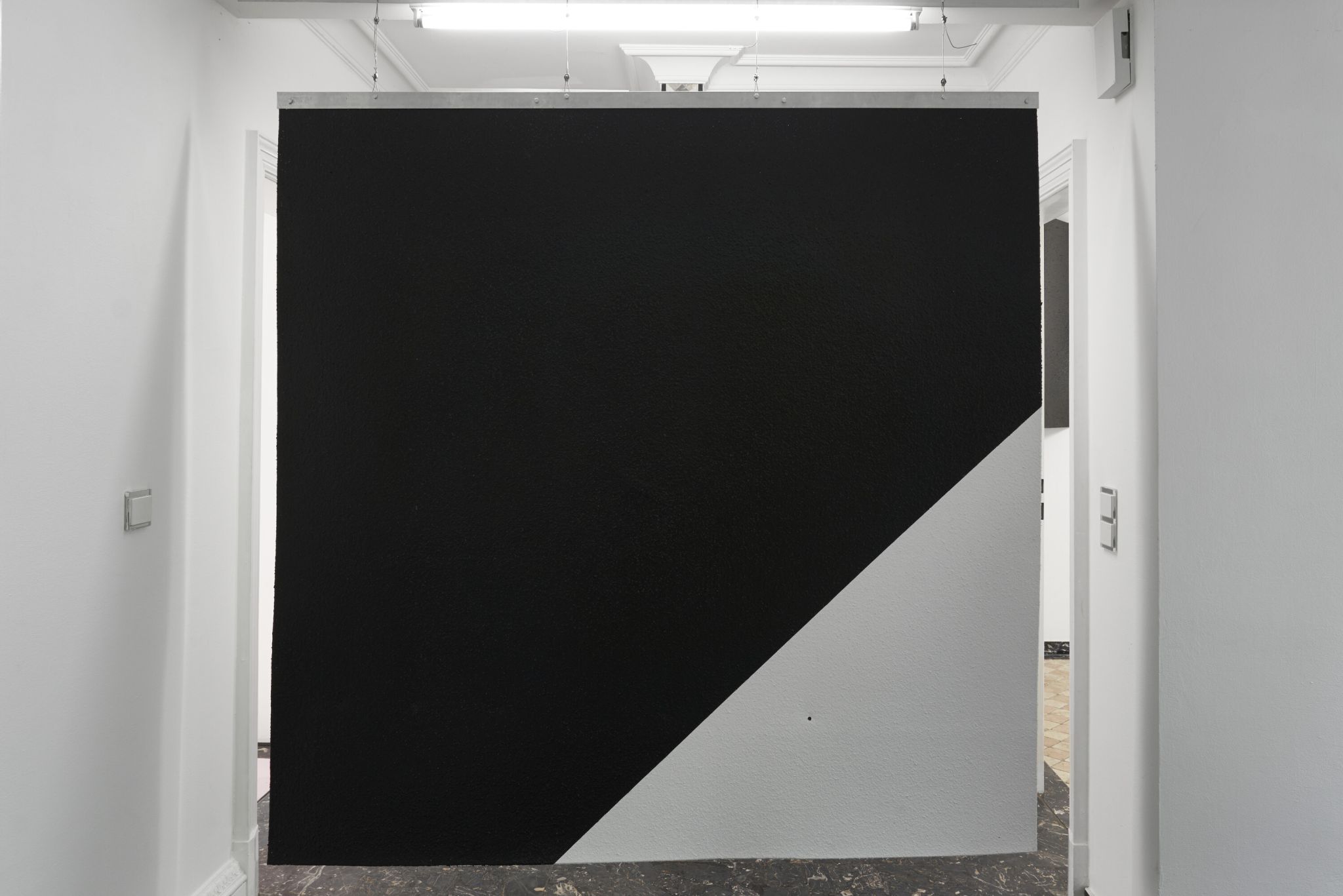
Gerry Bibby and Henrik Olesen, Naked Lunch, 2016
Carpet, paint, steel, aluminium, wood, photocopy, 180 × 180 cm -
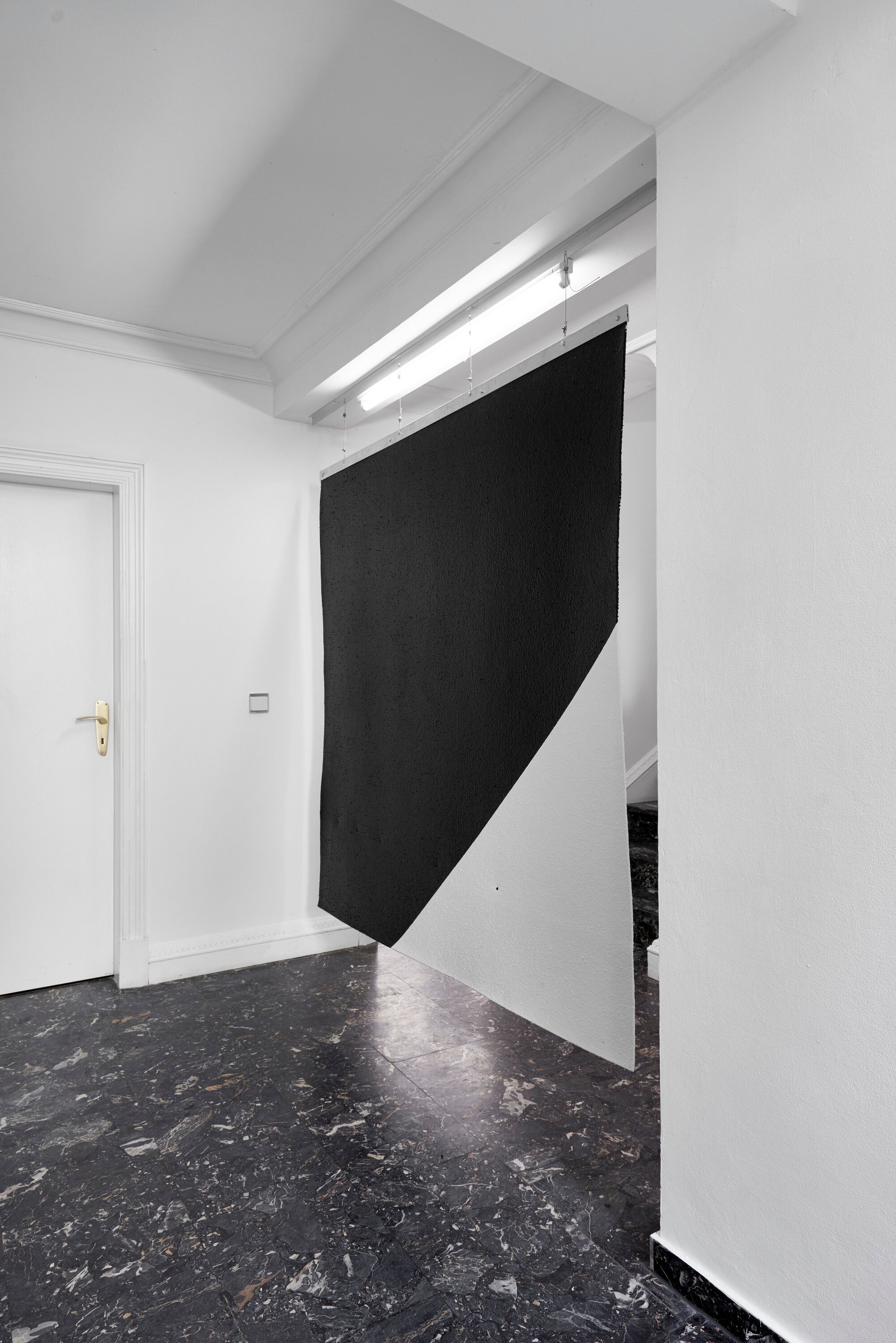
Gerry Bibby and Henrik Olesen, Naked Lunch, 2016
Carpet, paint, steel, aluminium, wood, photocopy, 180 × 180 cm -
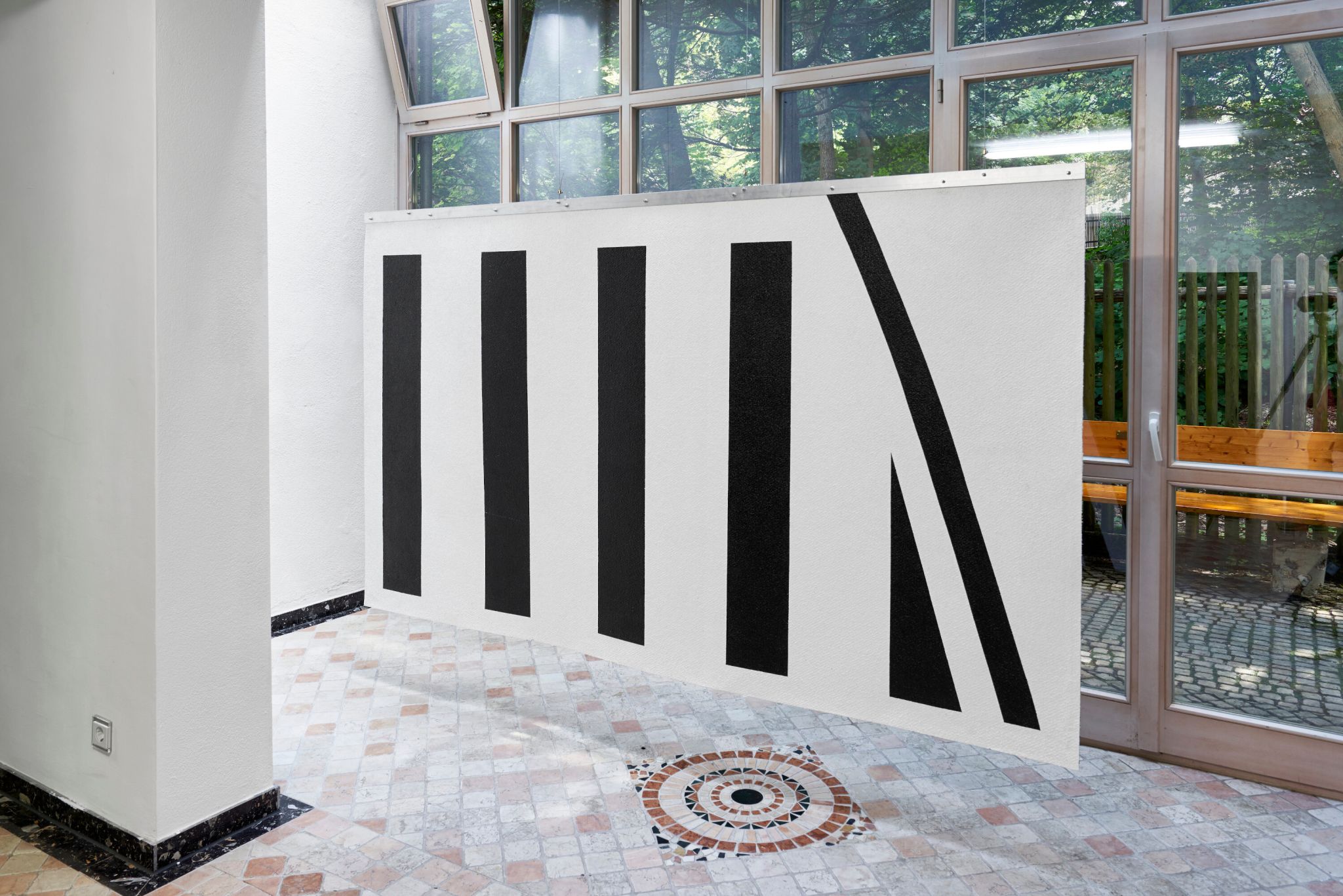
Gerry Bibby and Henrik Olesen, Zebrastreifen, 2016
Carpet, paint, steel, aluminium, 150 × 260 cm -
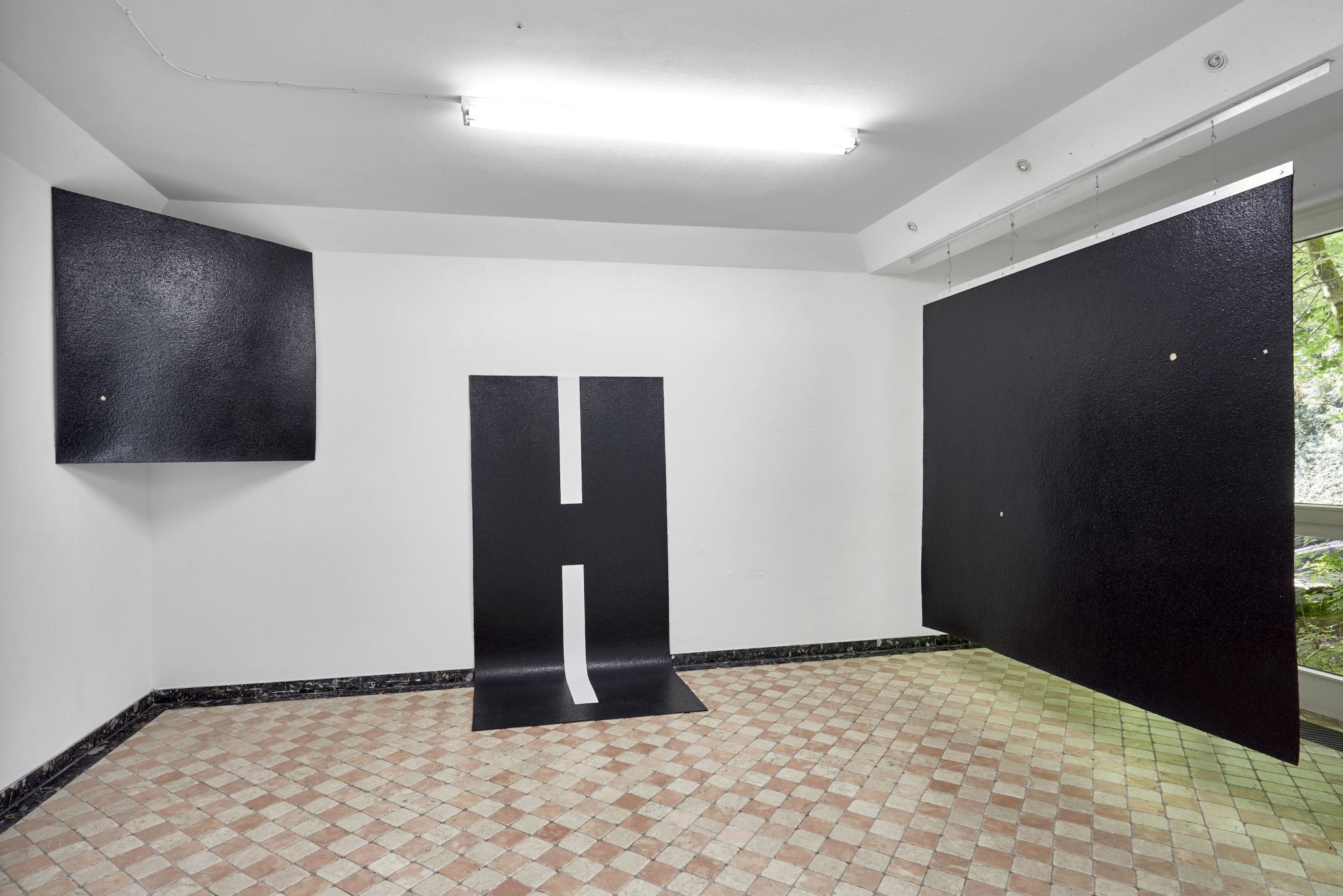
Gerry Bibby and Henrik Olesen, Strasse, Installation view -
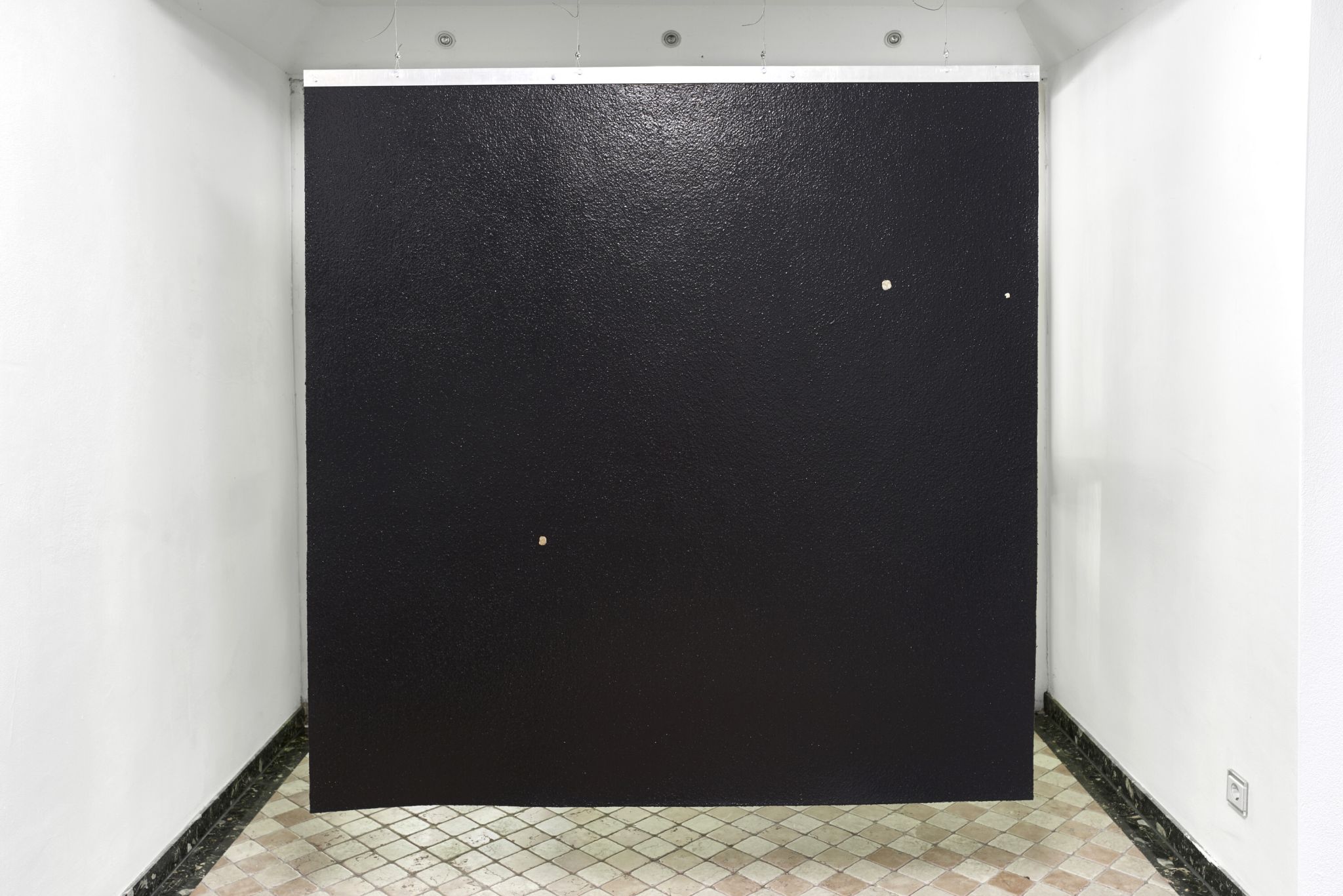
Gerry Bibby and Henrik Olesen, Grosses Kaugummi, 2016
Carpet, paint, gum, 180 × 180 cm -

Gerry Bibby and Henrik Olesen, Grosses Kaugummi (detail), 2016
Carpet, paint, gum, 180 × 180 cm -
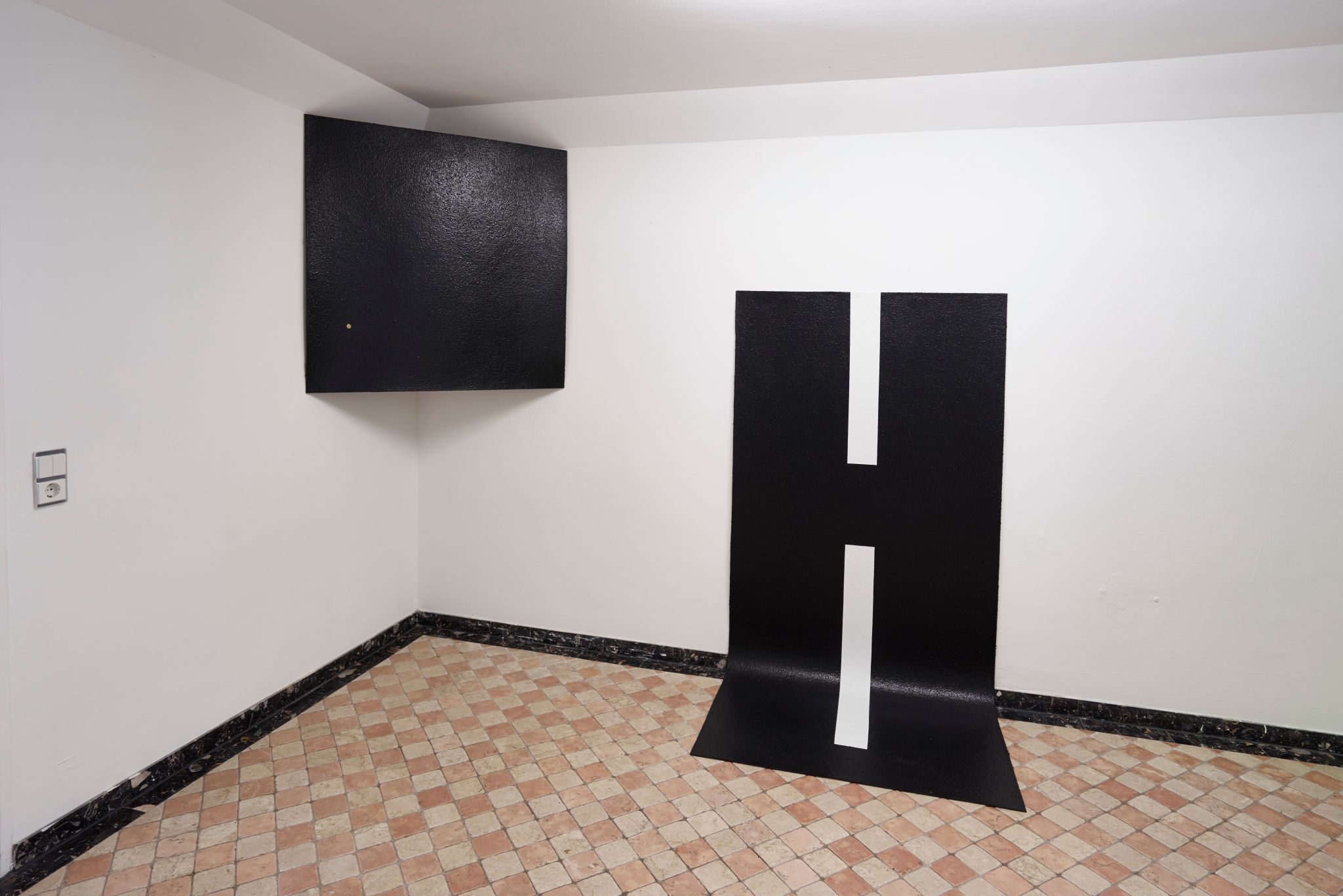
Gerry Bibby and Henrik Olesen, Strasse, Installation view -
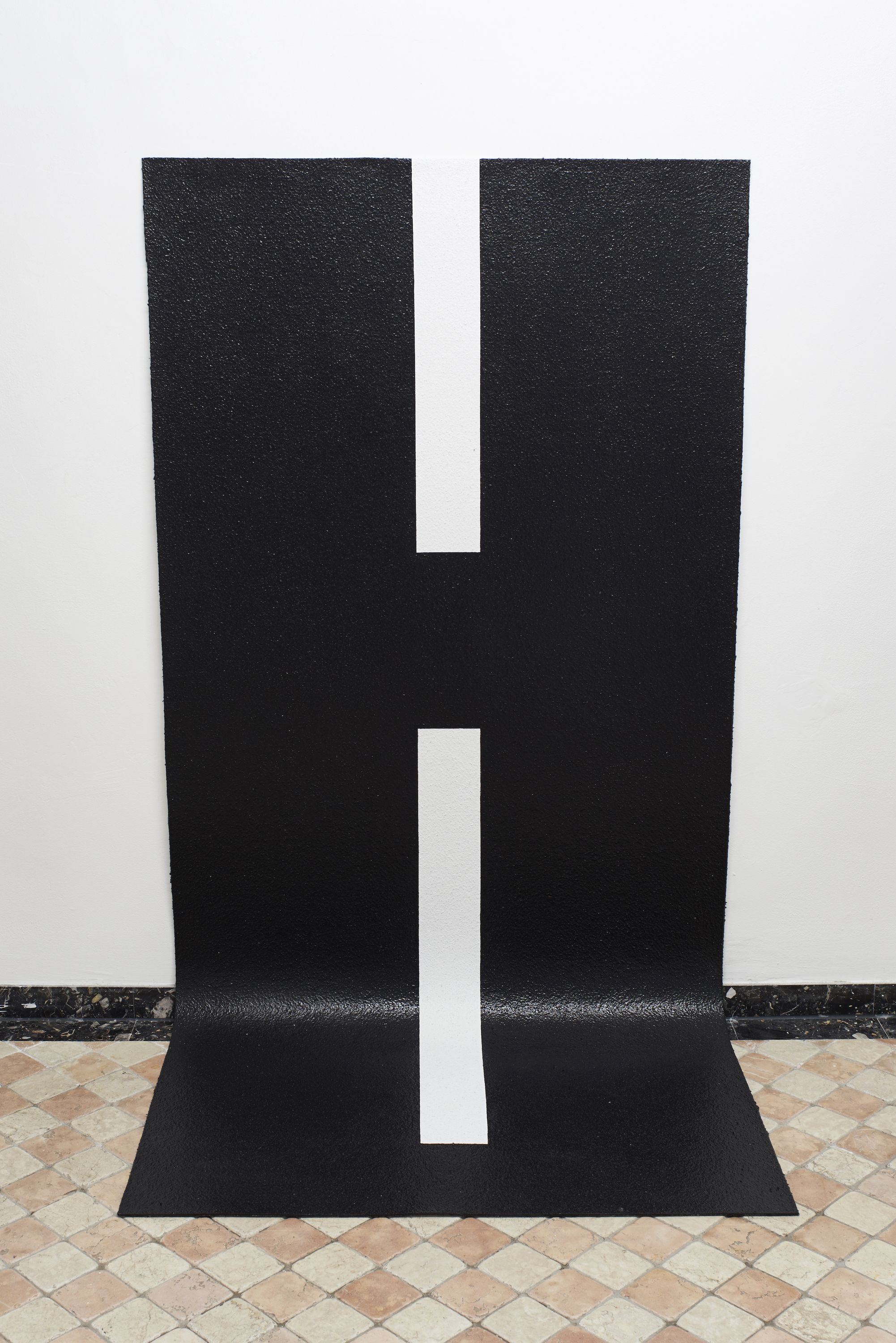
Gerry Bibby and Henrik Olesen, Autobahn, 2016
Carpet, paint, 72 × 110 × 166 cm -
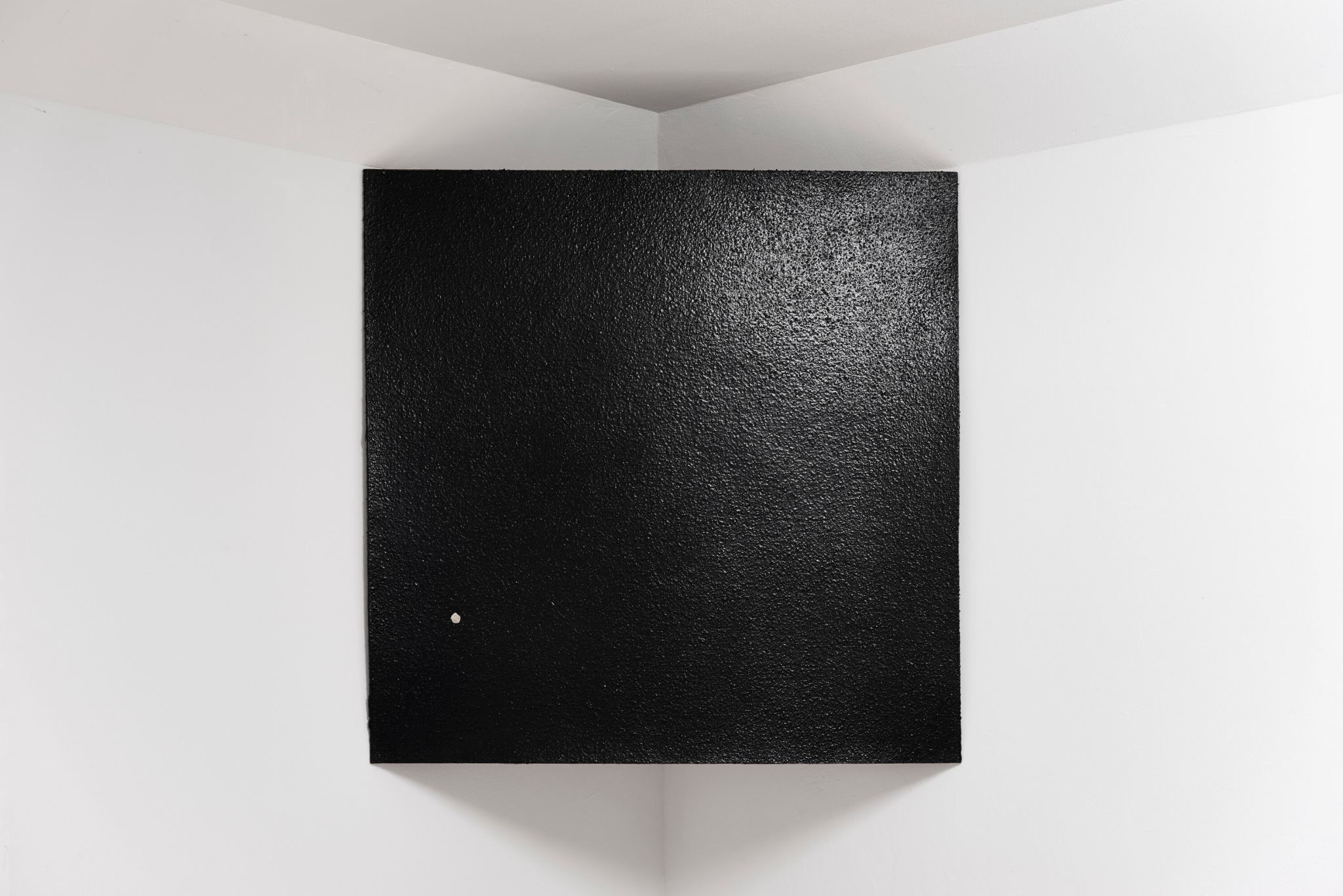
Gerry Bibby and Henrik Olesen, Fernseher, 2016
Carpet, paint, gum, 110 × 110 cm -

Gerry Bibby and Henrik Olesen, Fernseher (detail), 2016
Carpet, paint, gum, 110 × 110 cm -
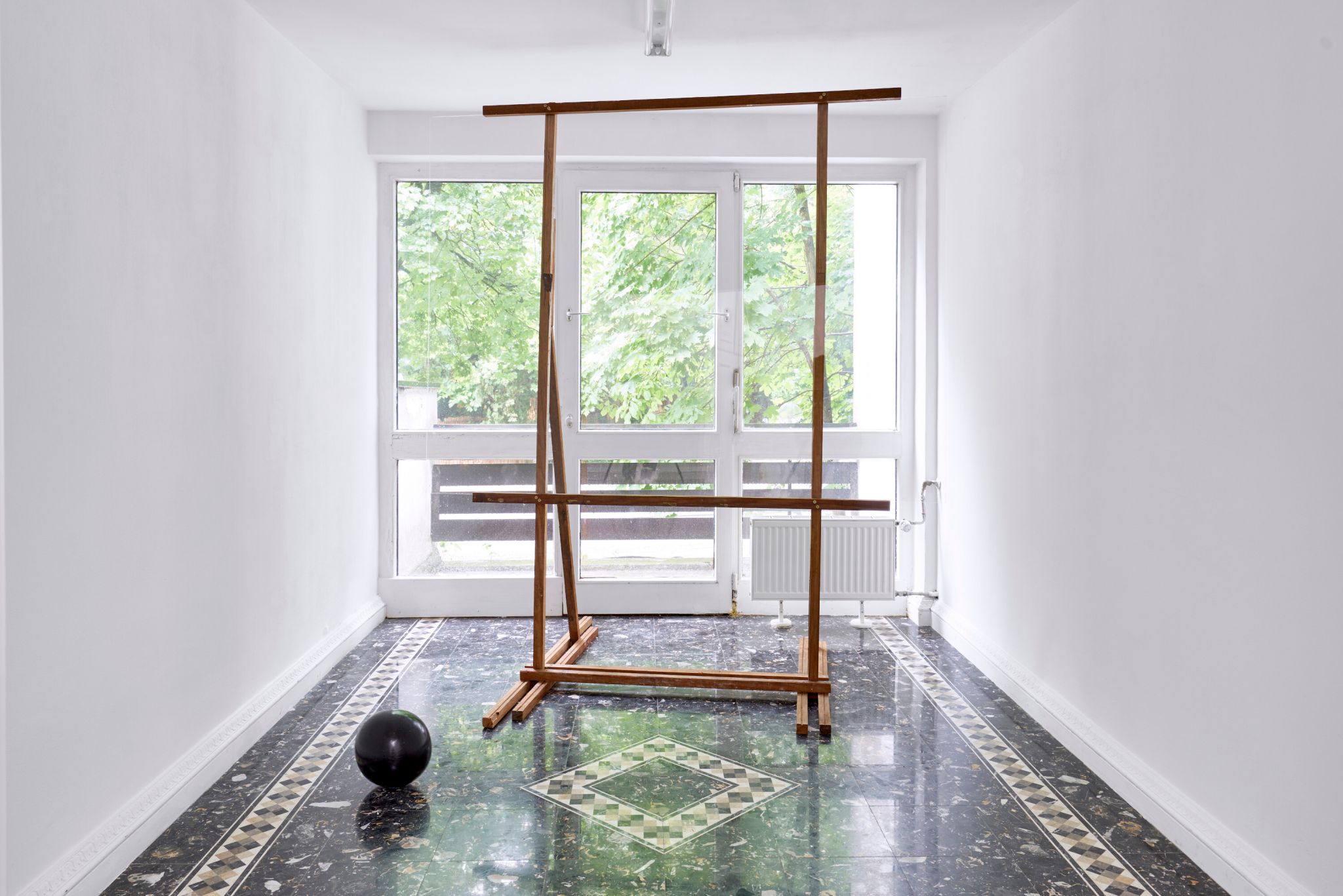
Gerry Bibby, Versatile?, 2016
Wood, acrylic, glass, steel, balls, Installation various dimensions, Sculpture: 230×213×146 cm -
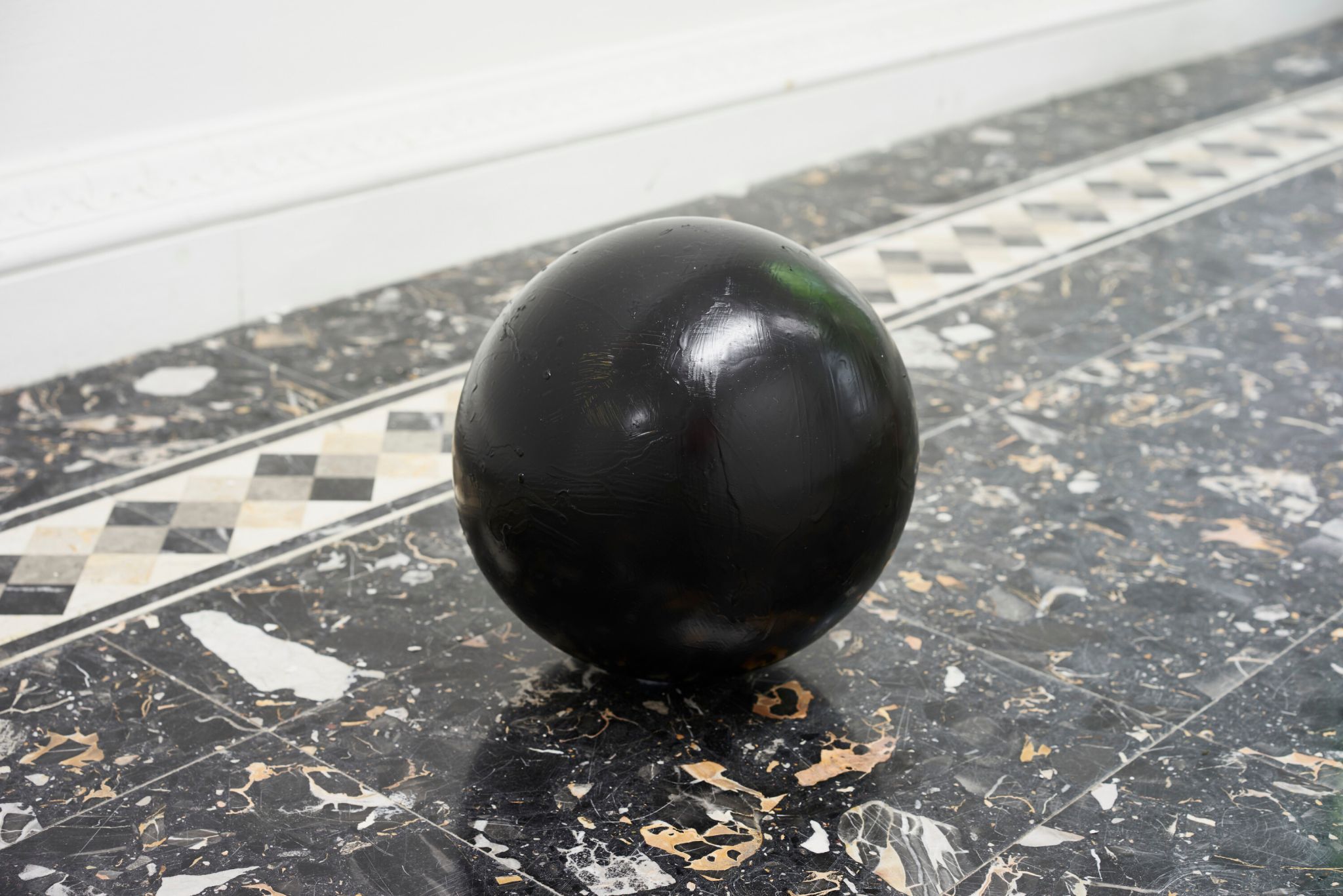
Gerry Bibby and Henrik Olesen, Versatile? (detail), 2016
Wood, acrylic, glass, steel, balls, Installation various dimensions, Sculpture: 230×213×146 cm -
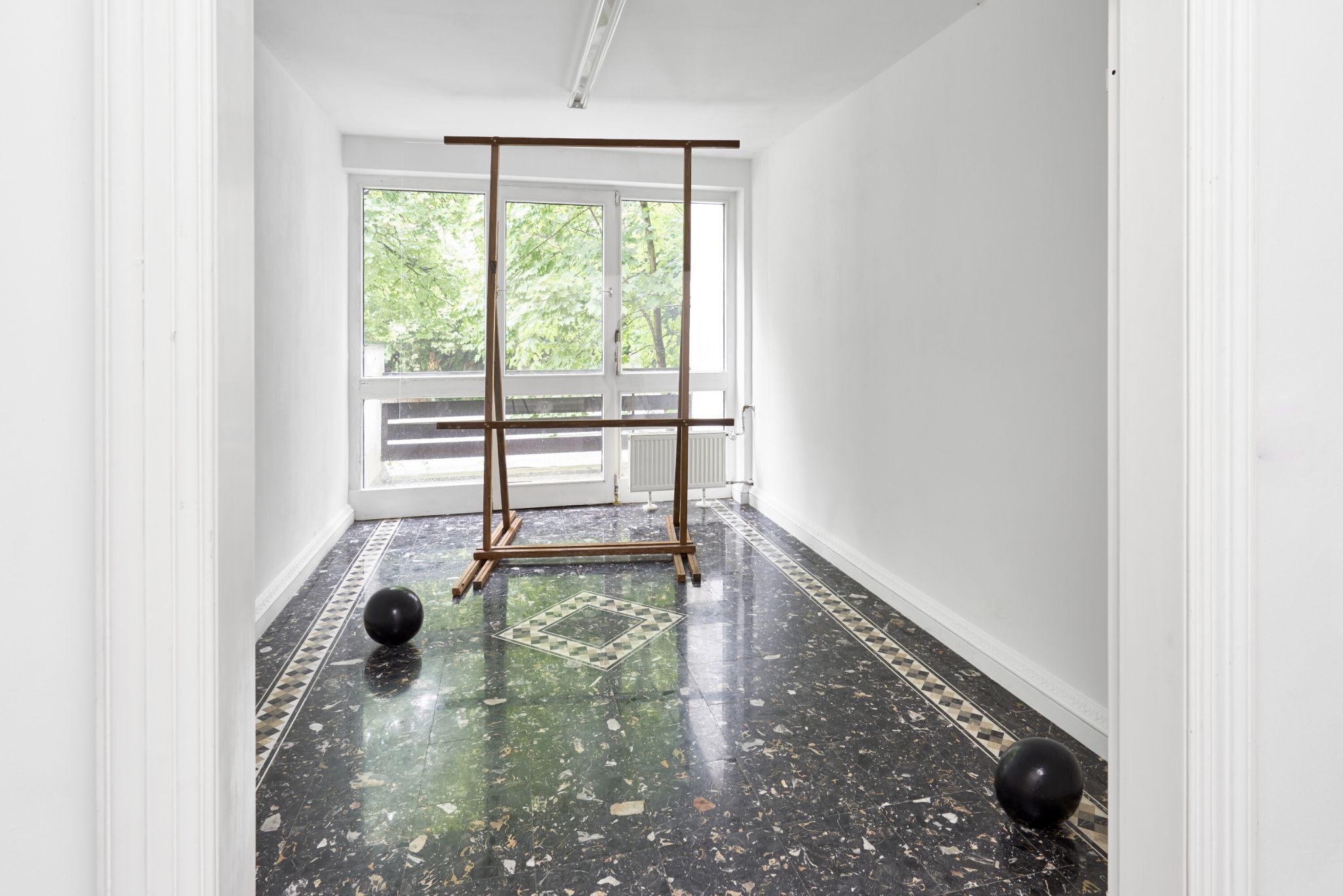
Gerry Bibby and Henrik Olesen, Versatile?, 2016
Wood, acrylic, glass, steel, balls, Installation various dimensions, Sculpture: 230×213×146 cm -
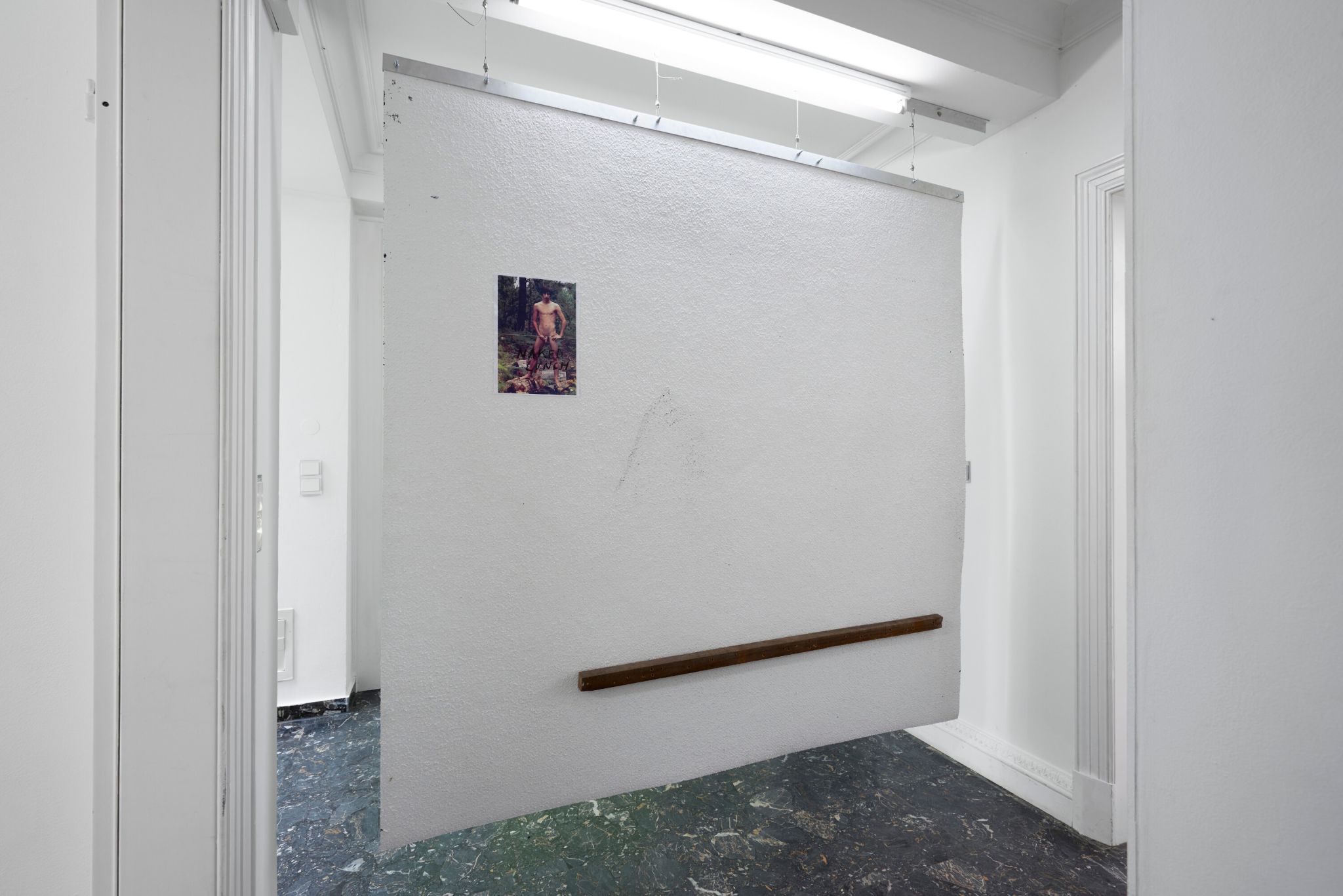
Gerry Bibby and Henrik Olesen, Naked Lunch, 2016
Carpet, paint, steel, aluminium, wood, photocopy, 180 × 180 cm -
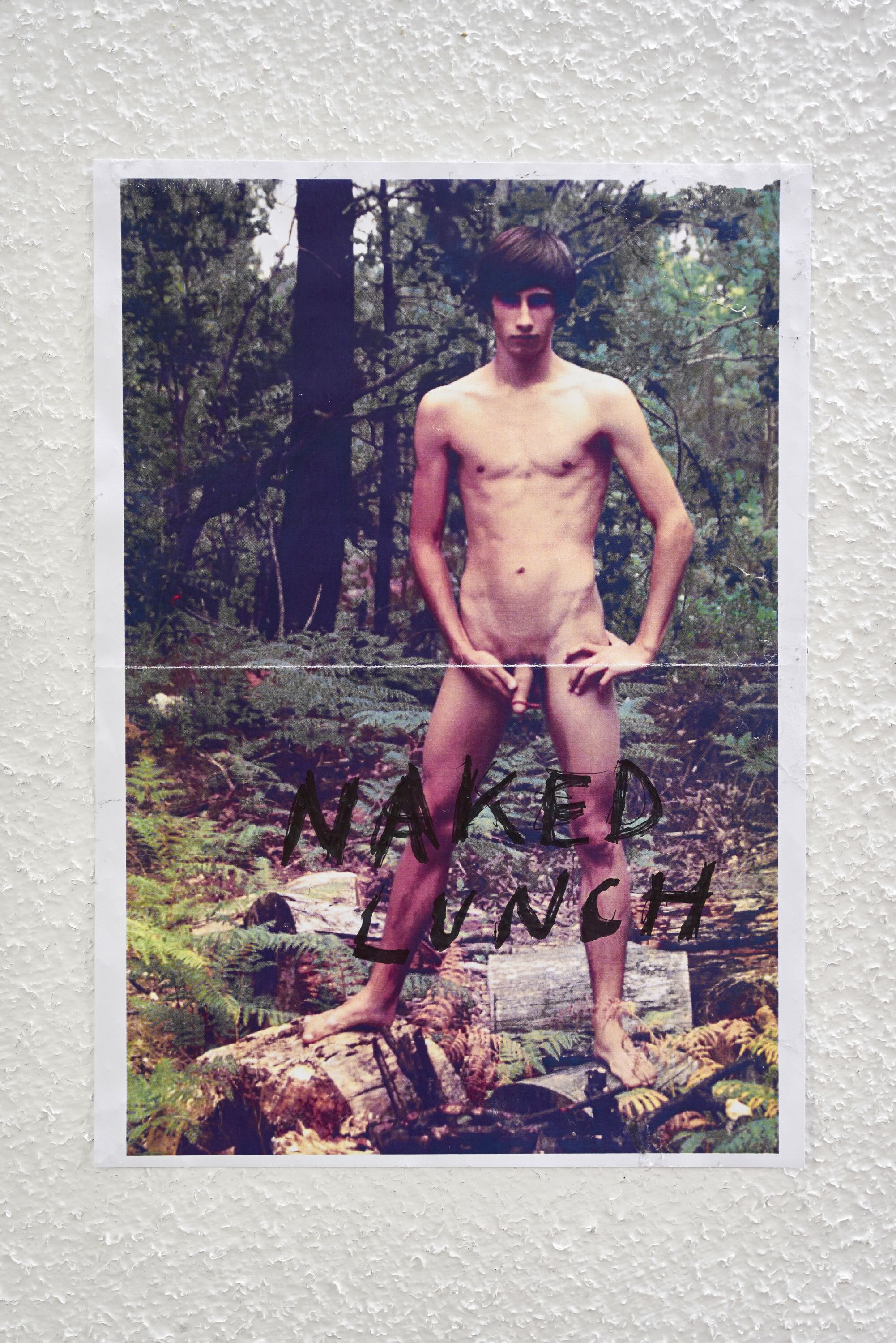
Gerry Bibby and Henrik Olesen, Naked Lunch (detail), 2016
Carpet, paint, steel, aluminium, wood, photocopy, 180 × 180 cm -
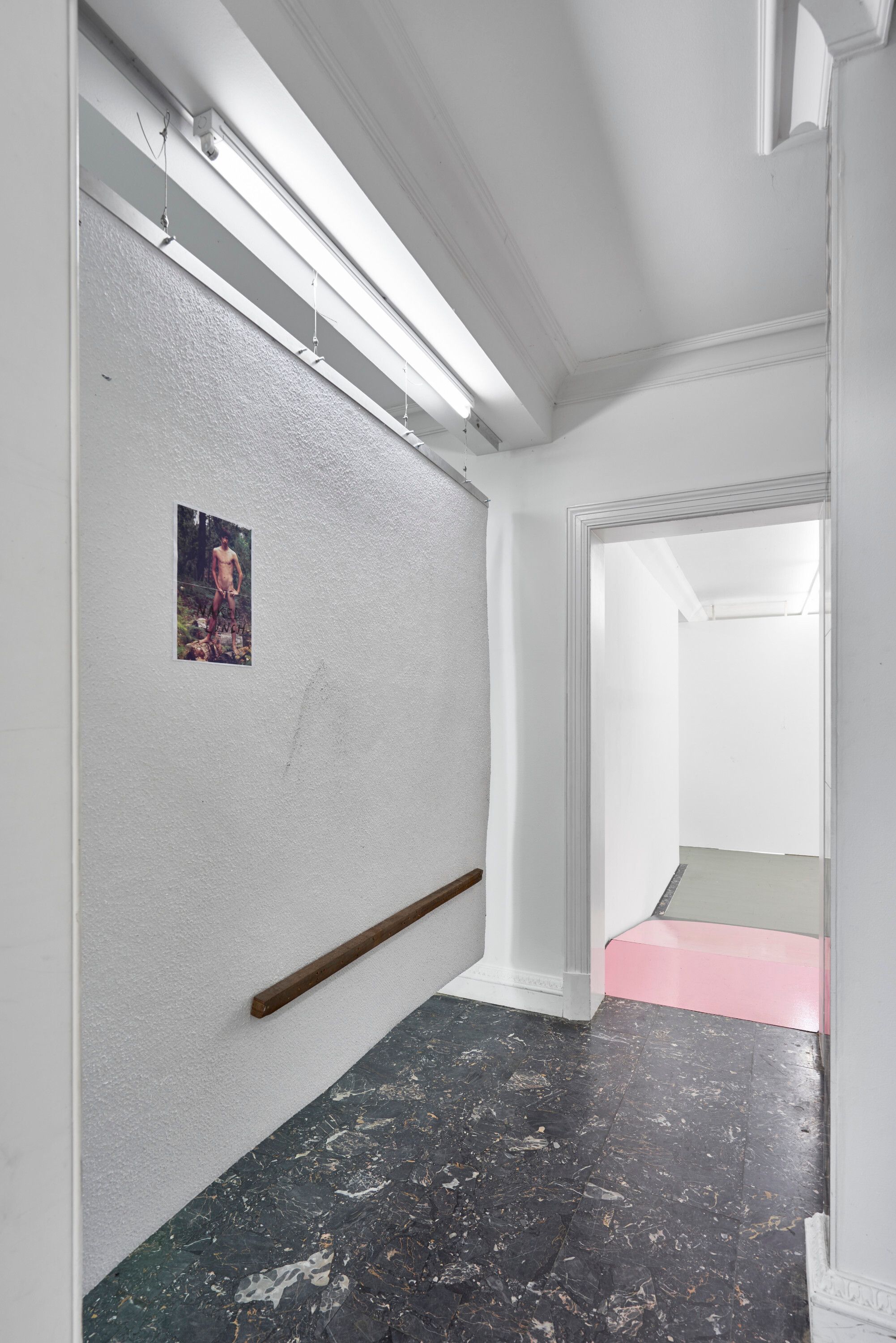
Installation view, Gerry Bibby, Henrik Olesen, Conversation in a Yes/No Landscape, Deborah Schamoni, 2016 -
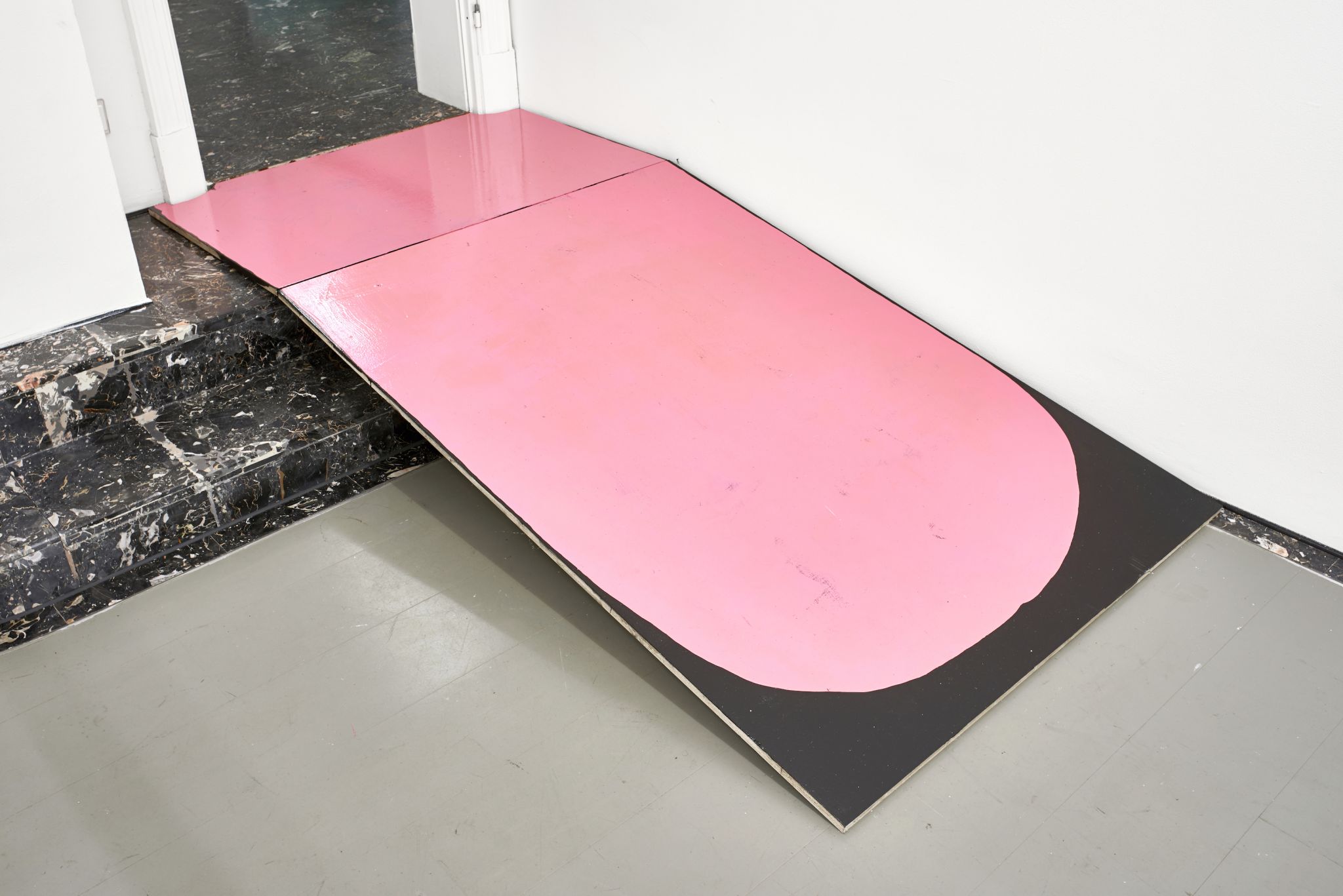
Gerry Bibby and Henrik Olesen, Tongue, 2016
Wood, paint, 250 × 112 × 30 cm -
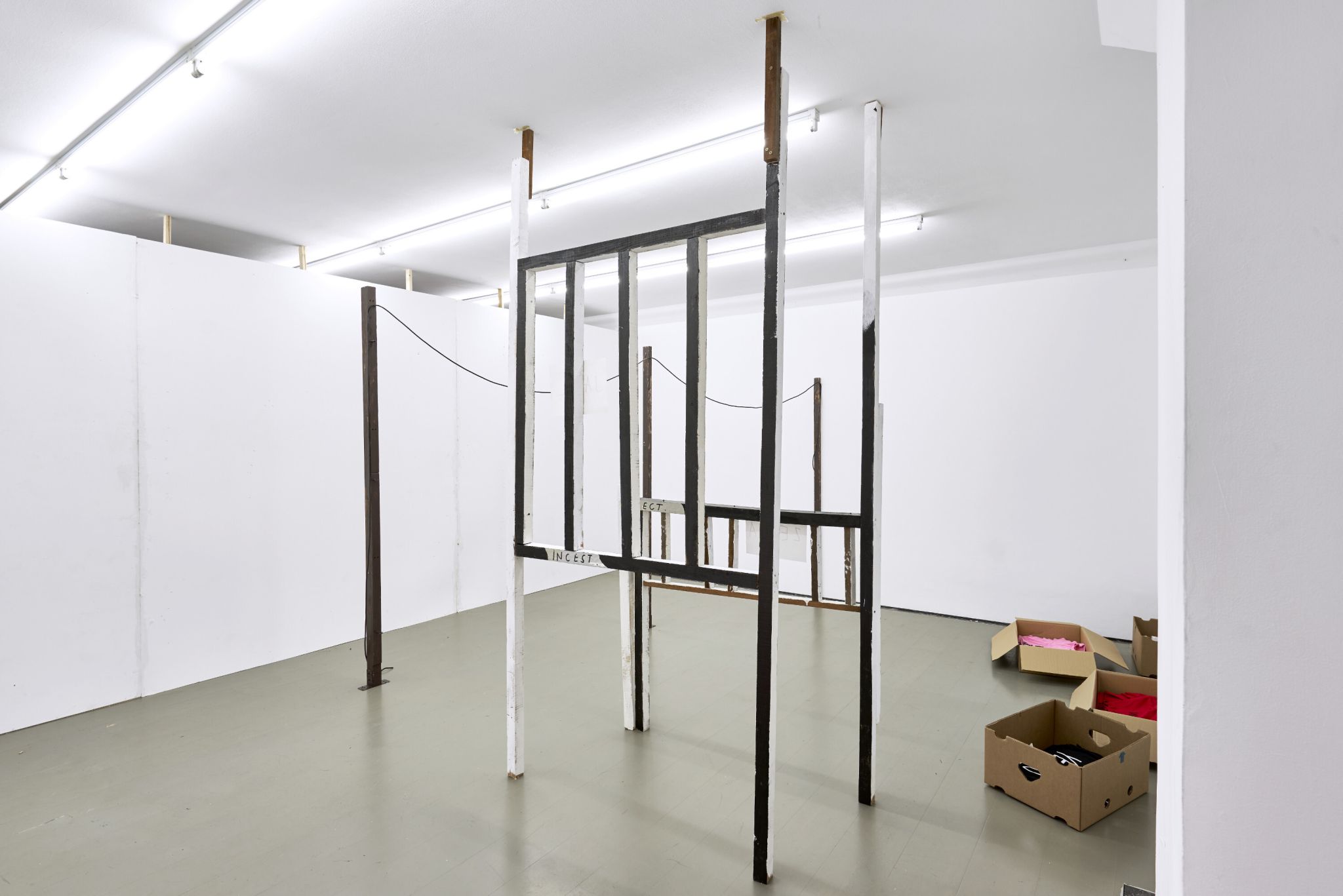
Gerry Bibby and Henrik Olesen, Language, Installation view -
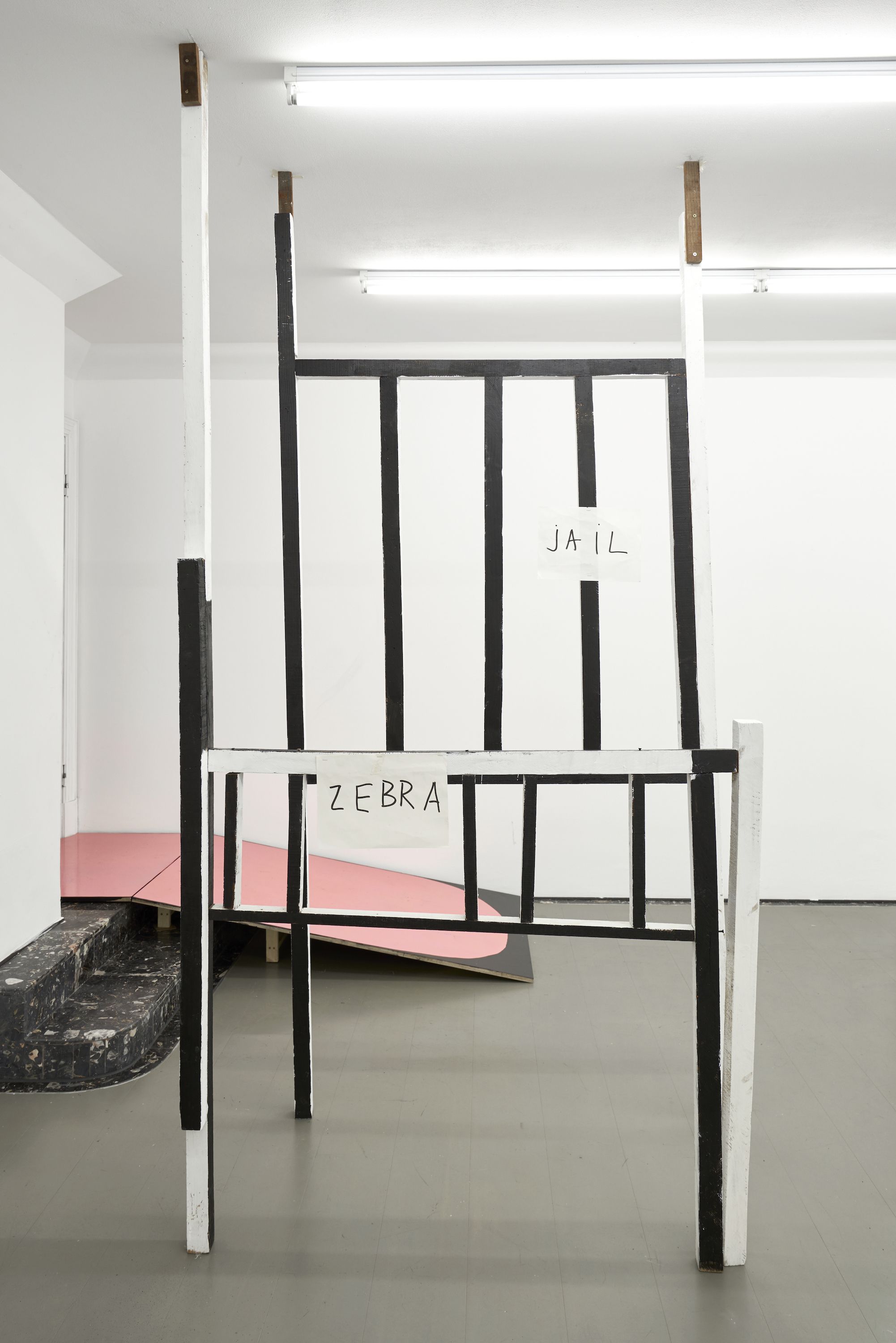
Gerry Bibby and Henrik Olesen, Projections, 2016
Wood, paint, tape, paper, 292 × 126 × 72 cm -
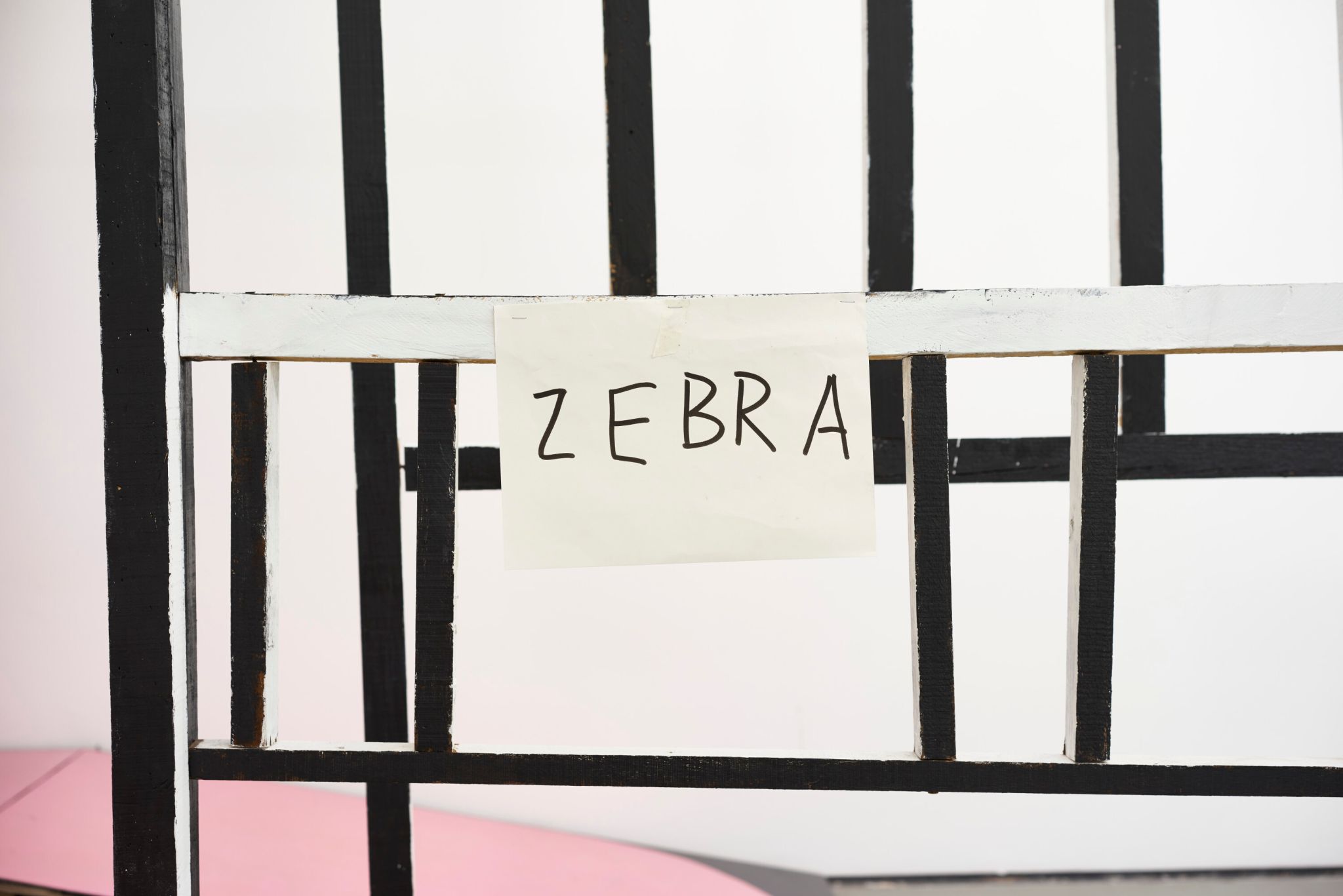
Gerry Bibby and Henrik Olesen, Projections (detail), 2016
Wood, paint, tape, paper, 292 × 126 × 72 cm -
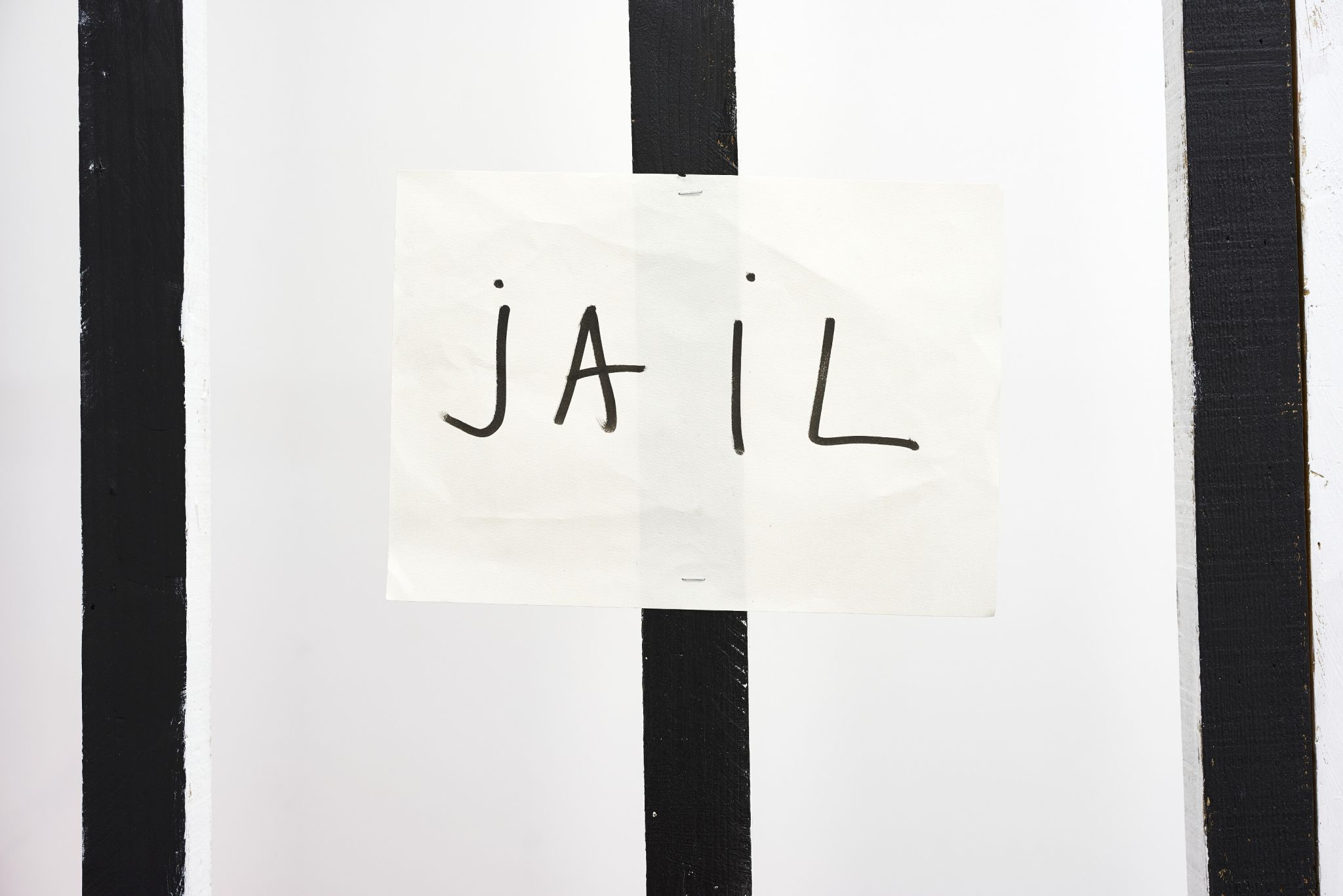
Gerry Bibby and Henrik Olesen, Projections (detail), 2016
Wood, paint, tape, paper, 292 × 126 × 72 cm -
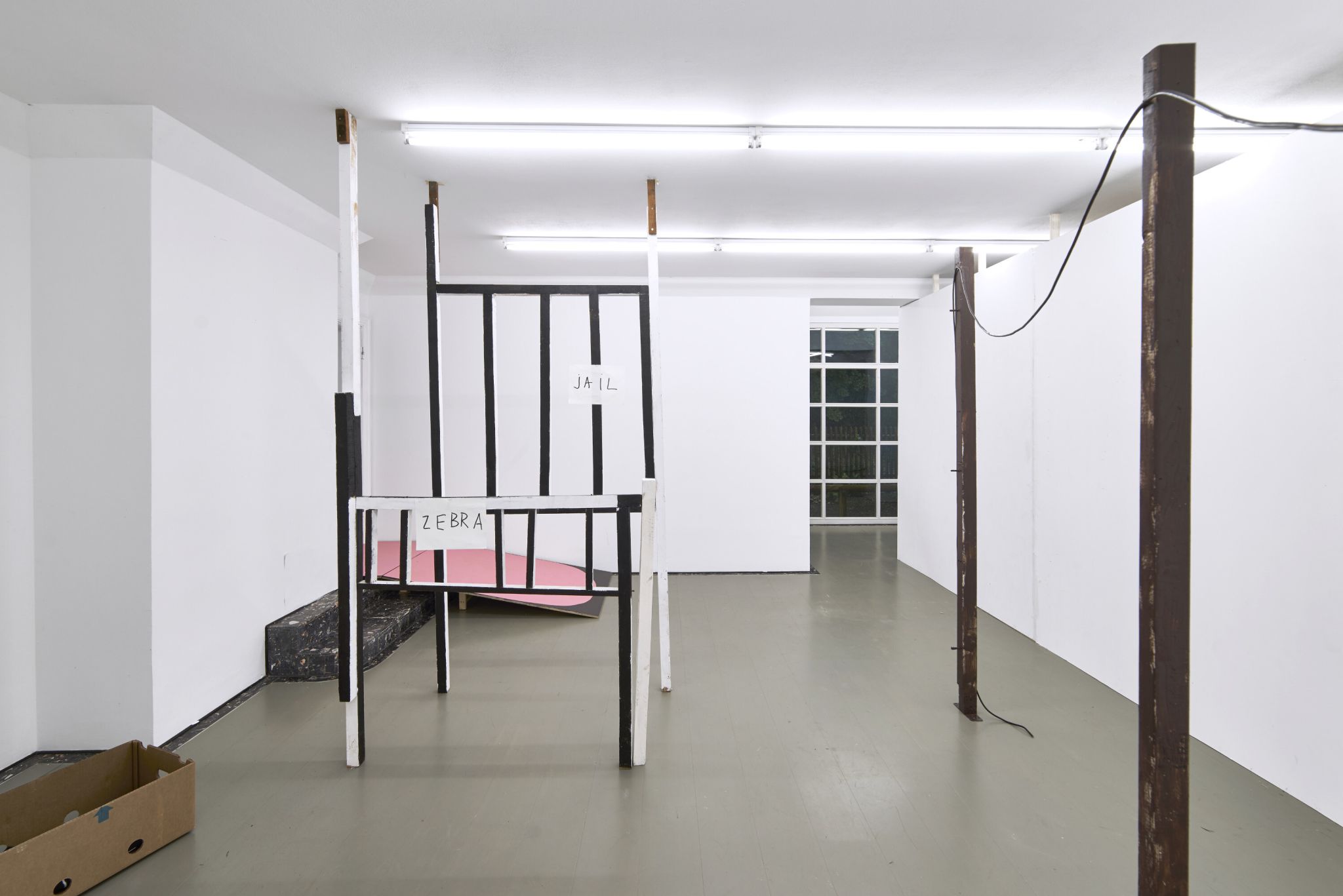
Gerry Bibby and Henrik Olesen, Language, Installation view -
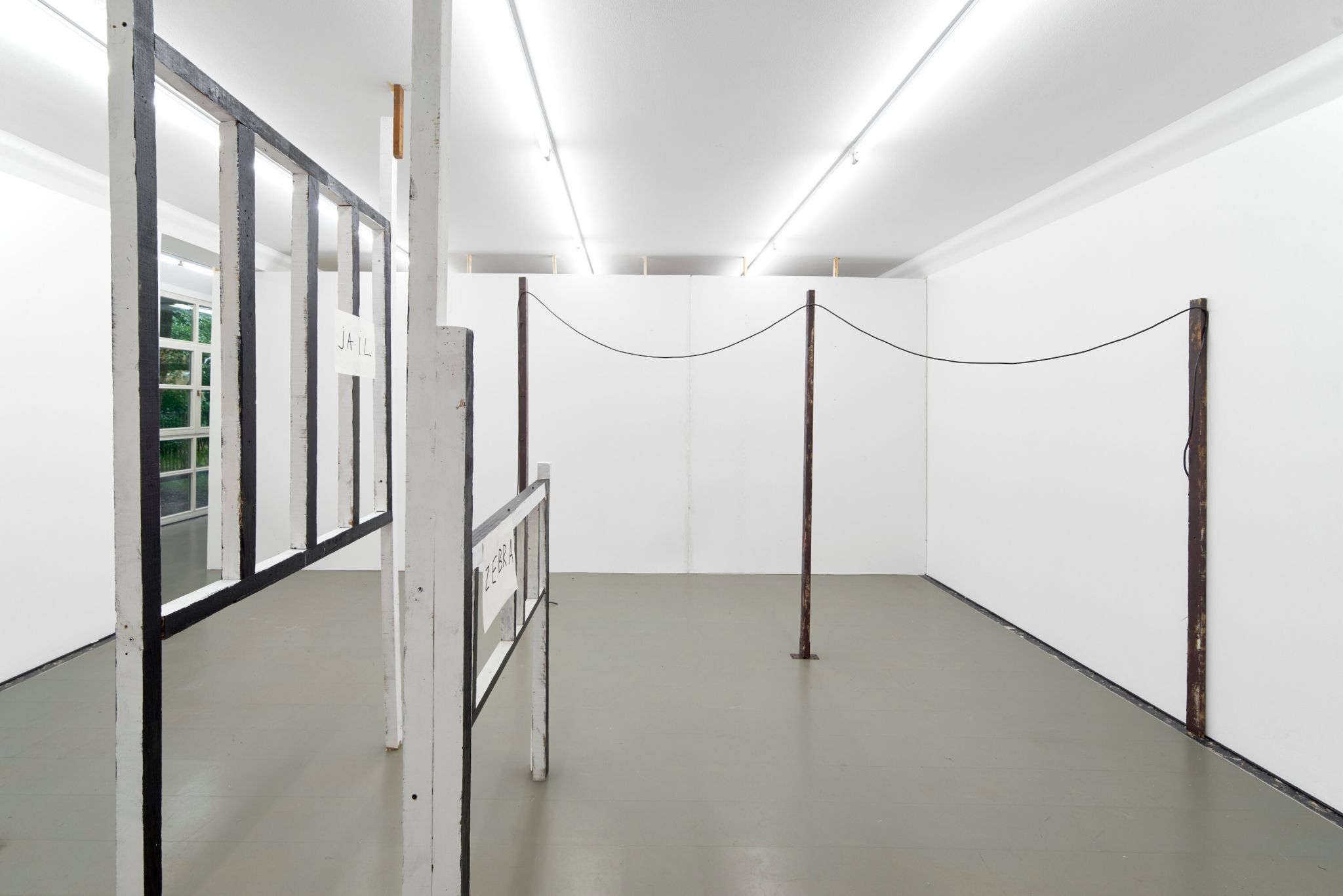
Gerry Bibby and Henrik Olesen, Language, Installation view -
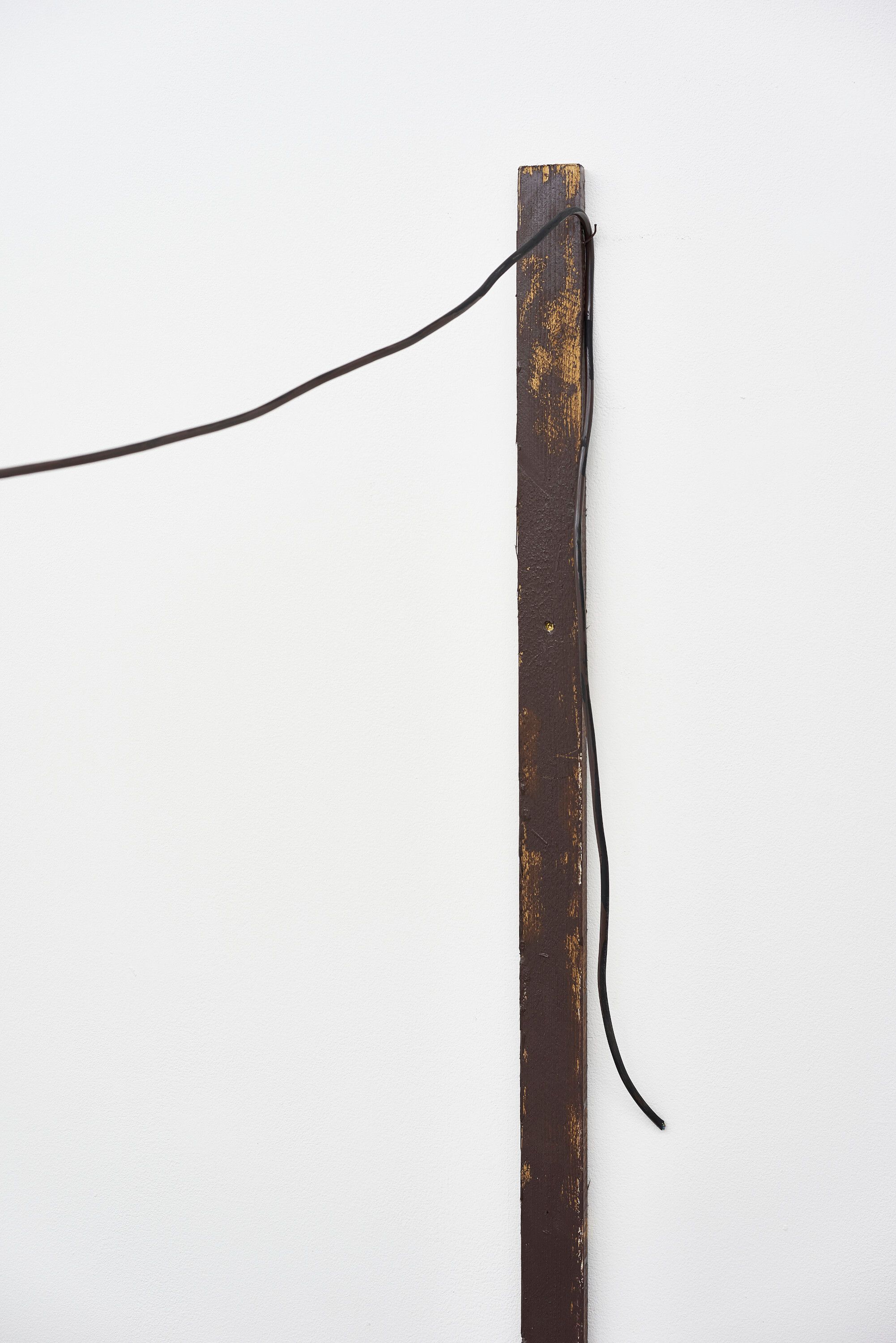
Gerry Bibby and Henrik Olesen, Power Line (detail), 2016
Wood, paint, cable, 250 × 140 × 357 cm -
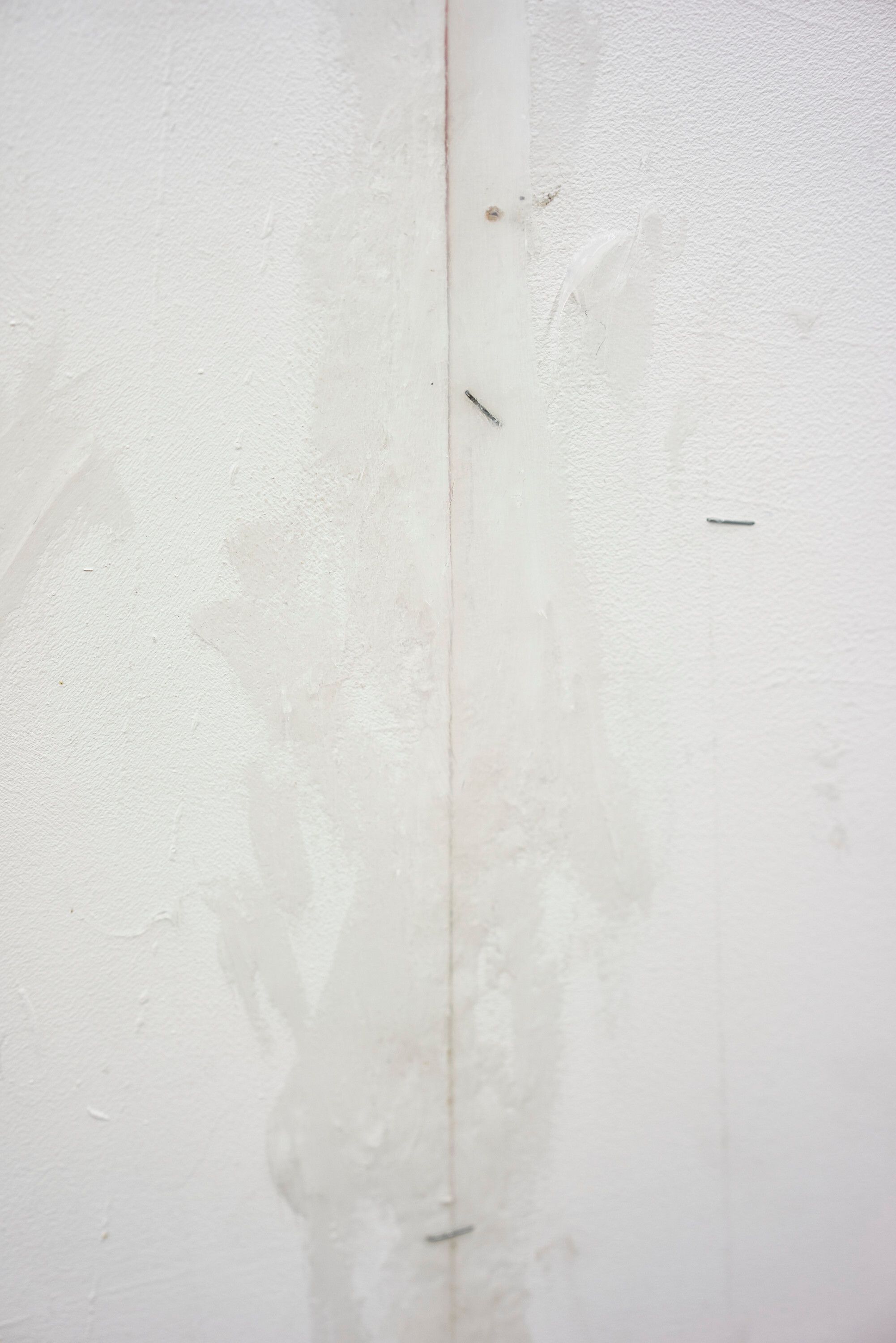
Gerry Bibby and Henrik Olesen, No Wall (detail), 2016
Wood, MDF boards, paint, paper, 292 × 675.5 × 5 cm -
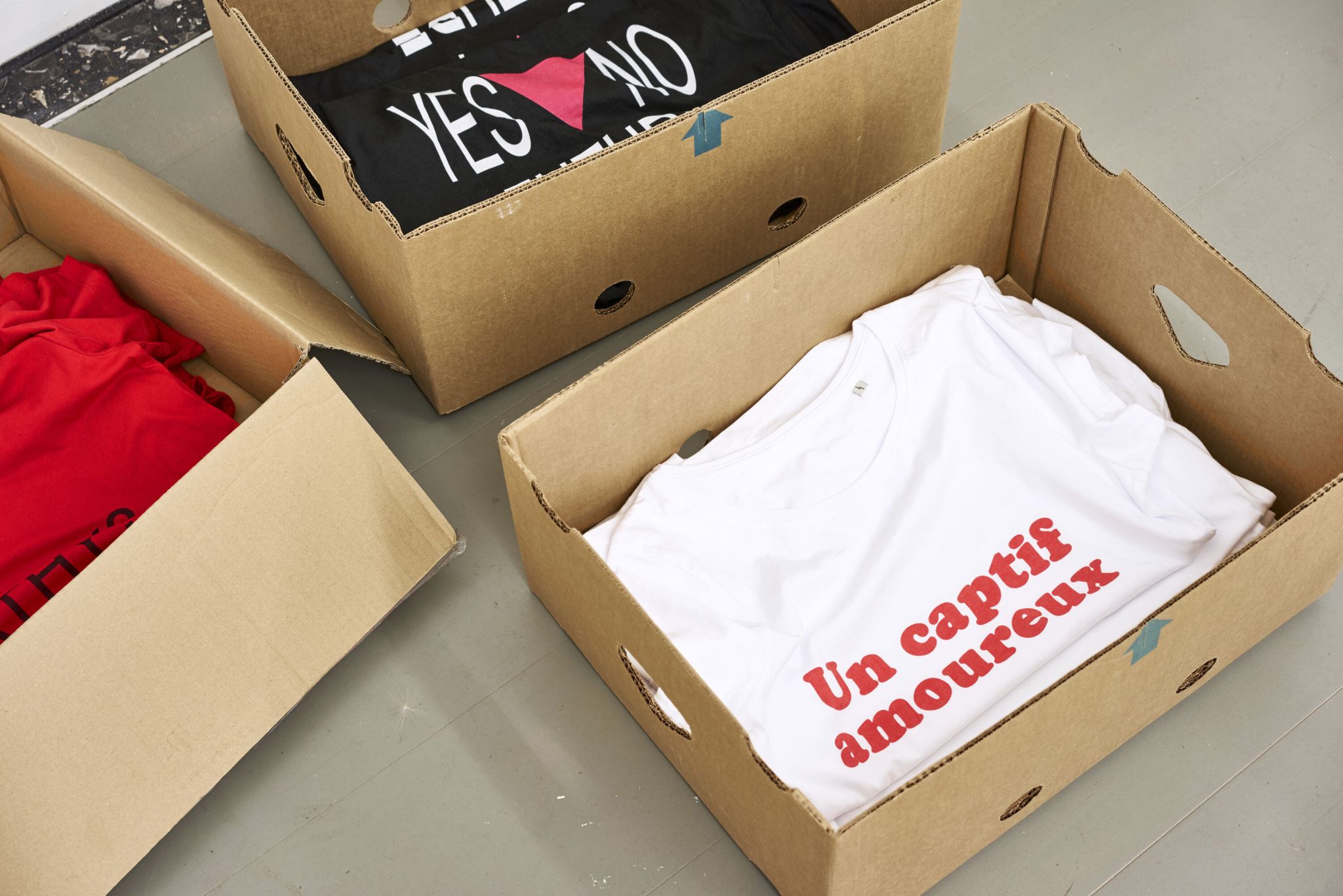
Installation view, Gerry Bibby, Henrik Olesen, Conversation in a Yes/No Landscape, Deborah Schamoni, 2016 -

Gerry Bibby and Henrik Olesen, Costumes 5. Black on pink, 2016
T-Shirts, Various sizes, Edition of 20 -
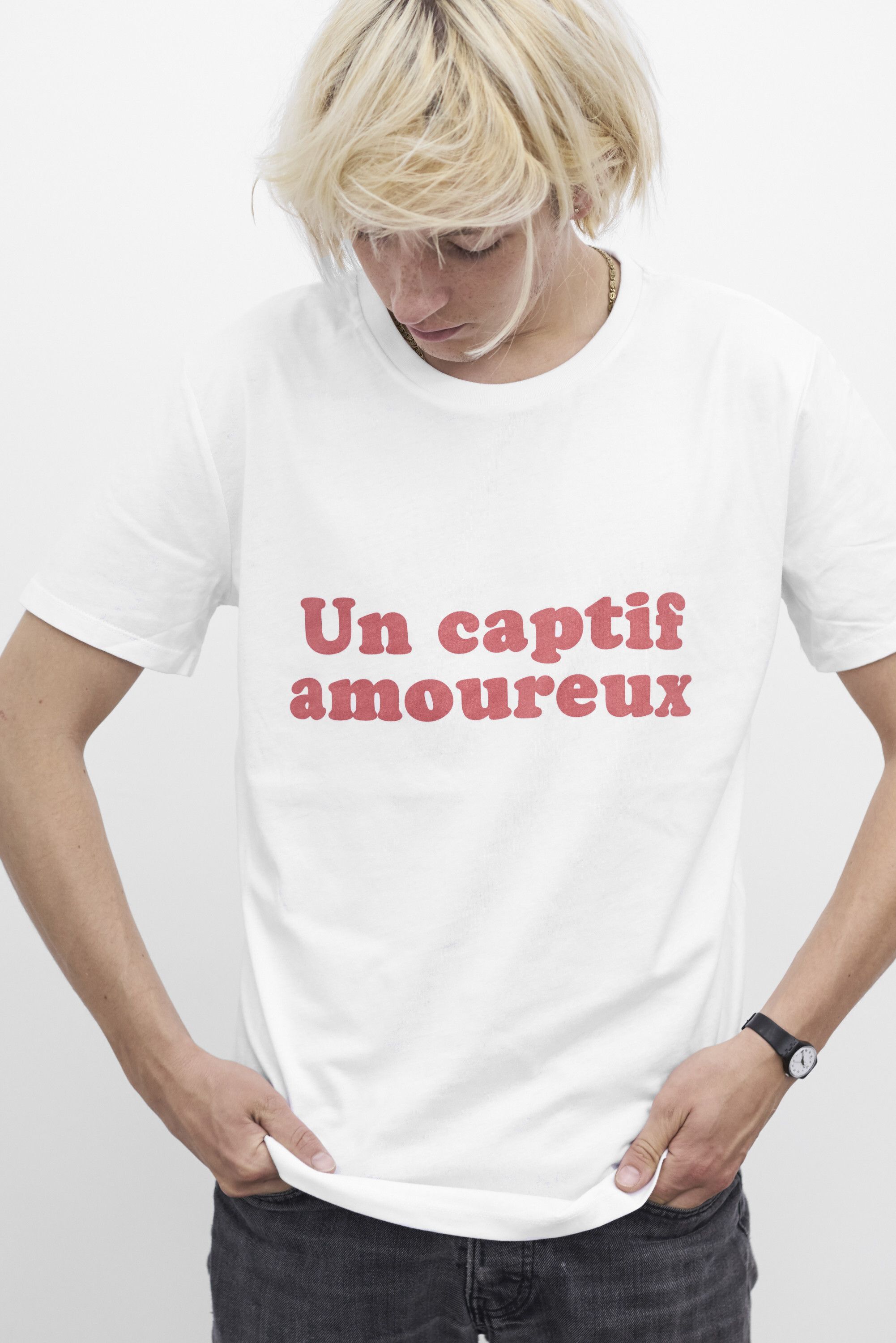
-
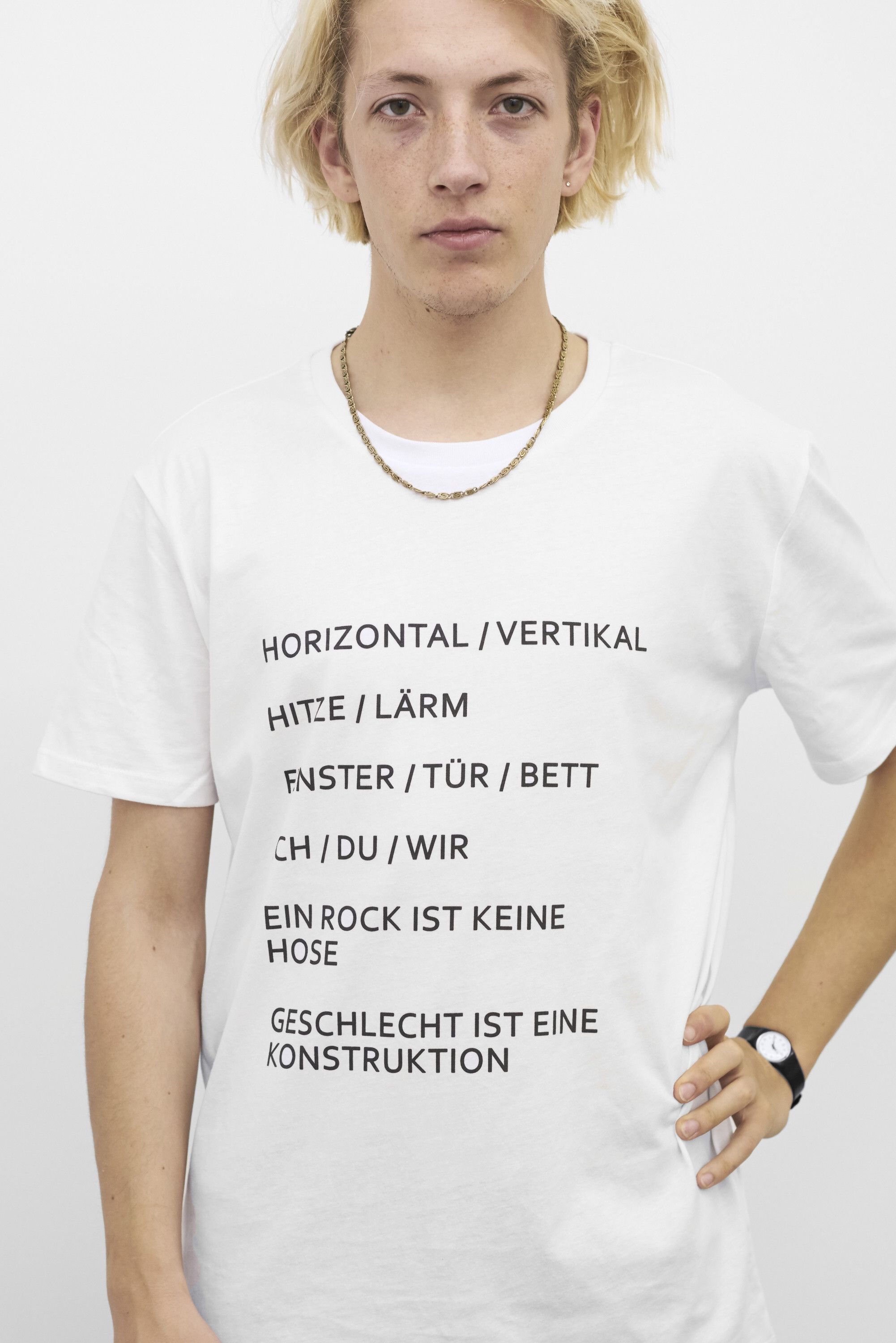
-
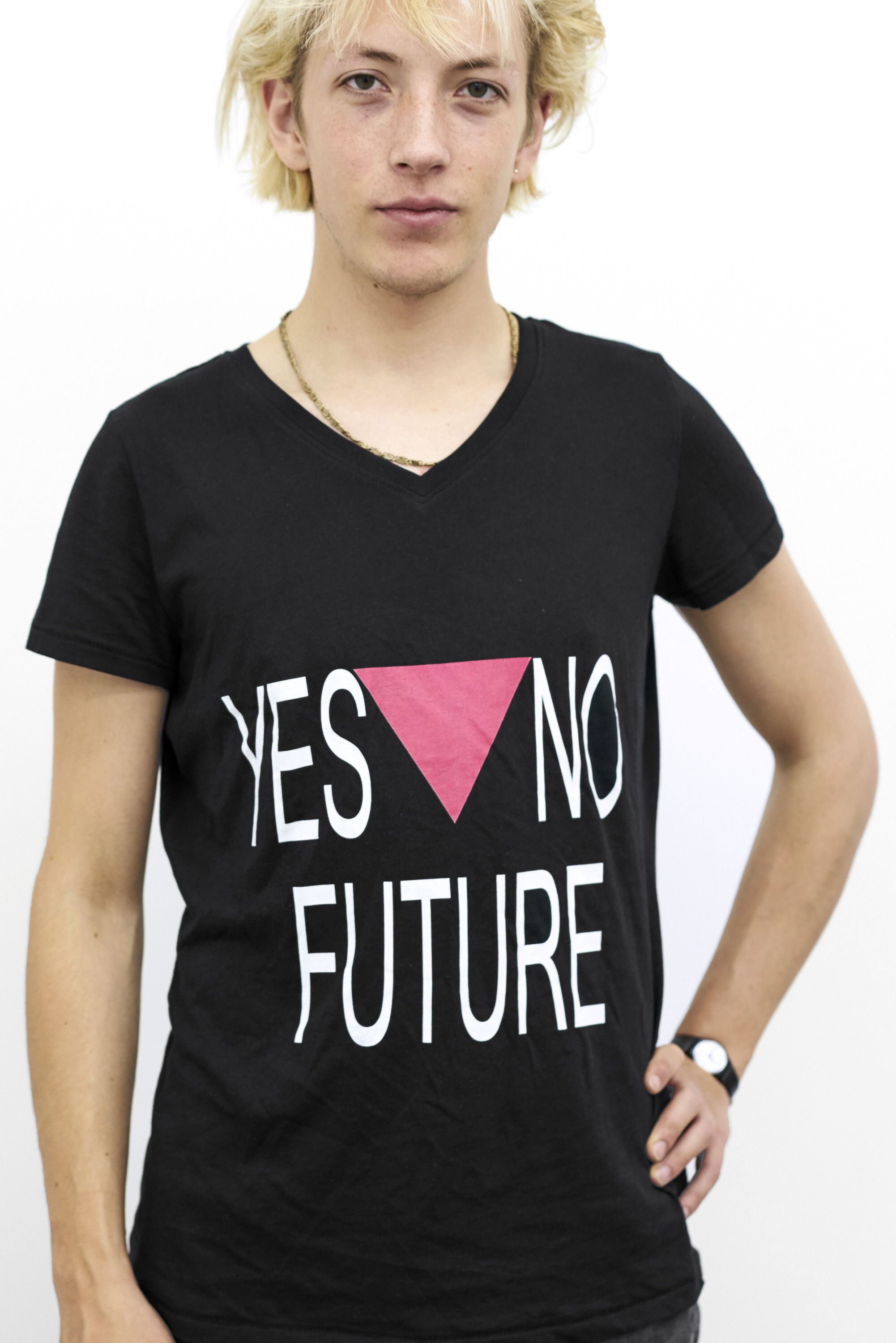
-
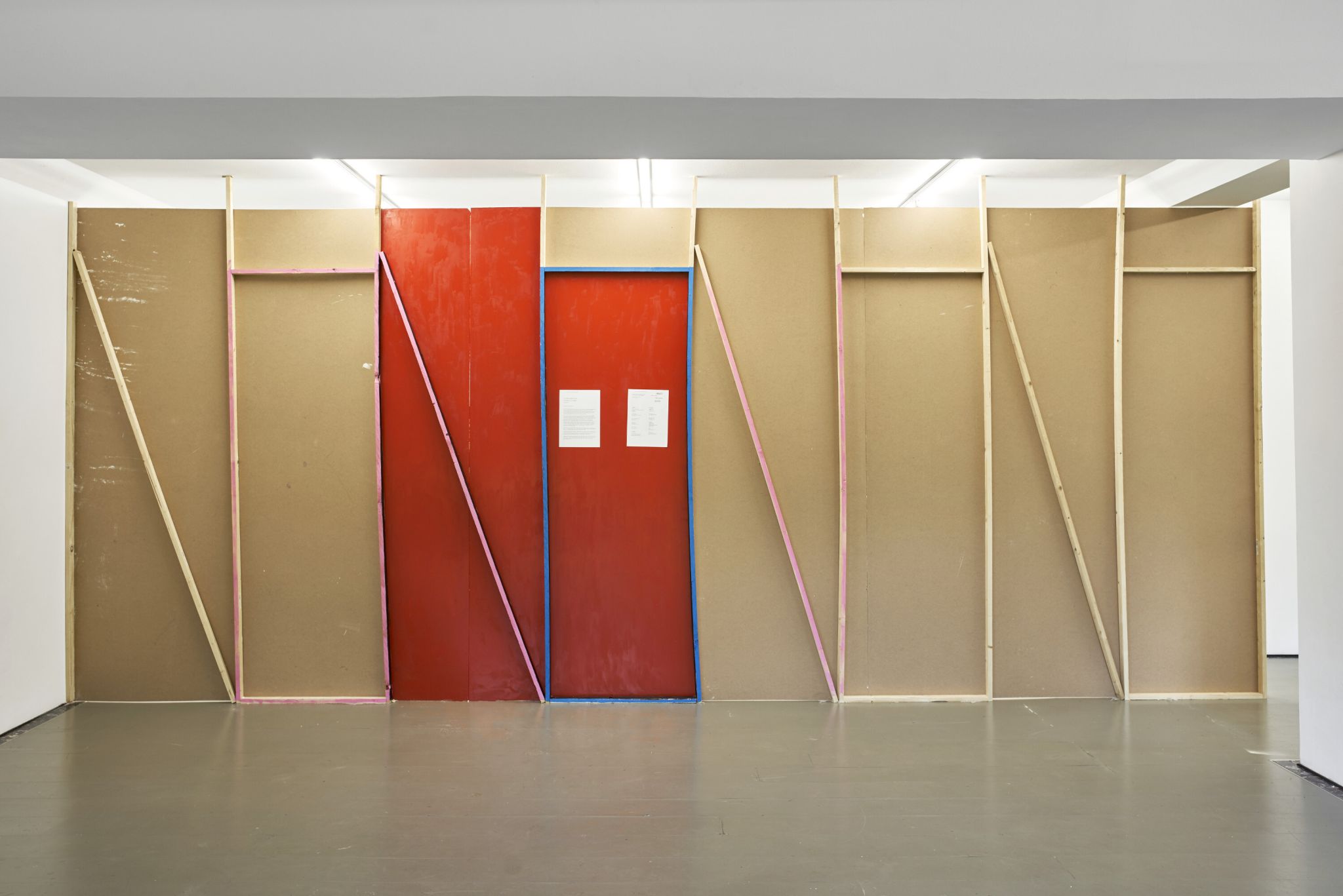
Gerry Bibby and Henrik Olesen, No Wall, 2016
Wood, MDF boards, paint, paper, 292 × 675.5 × 5 cm -
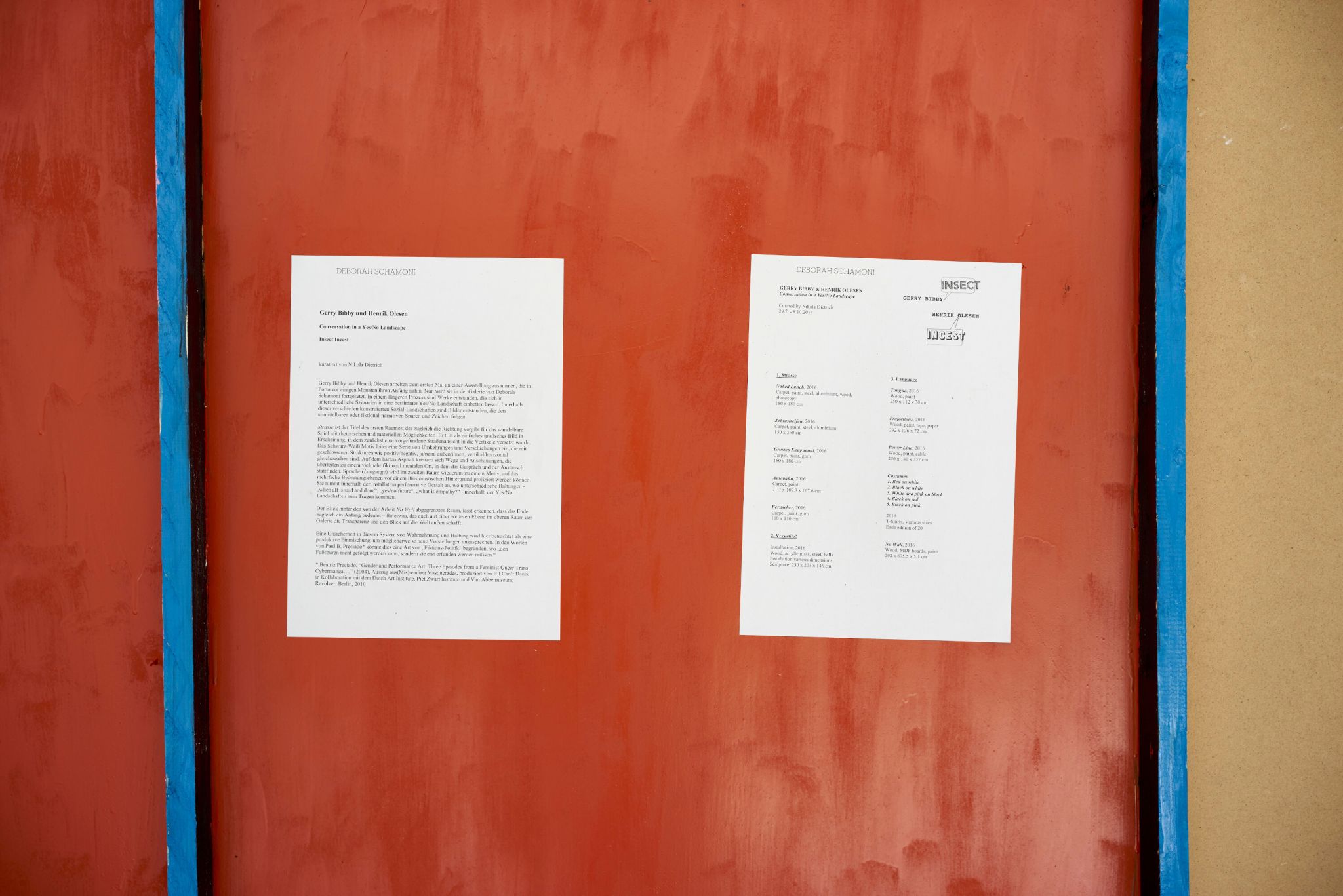
Gerry Bibby and Henrik Olesen, No Wall (detail), 2016
Wood, MDF boards, paint, paper, 292 × 675.5 × 5 cm -
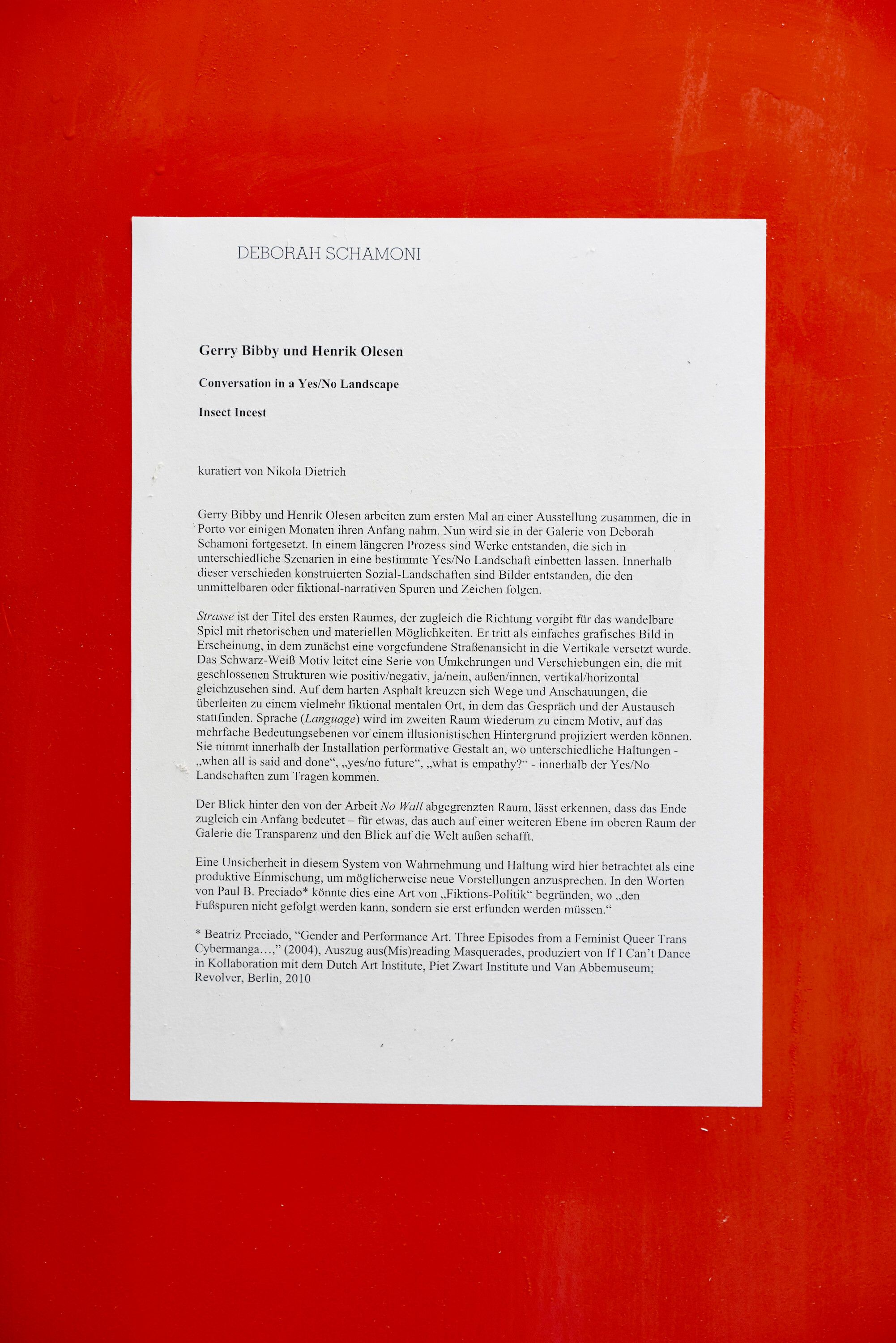
Gerry Bibby and Henrik Olesen, No Wall (detail), 2016
Wood, MDF boards, paint, paper, 292 × 675.5 × 5 cm -
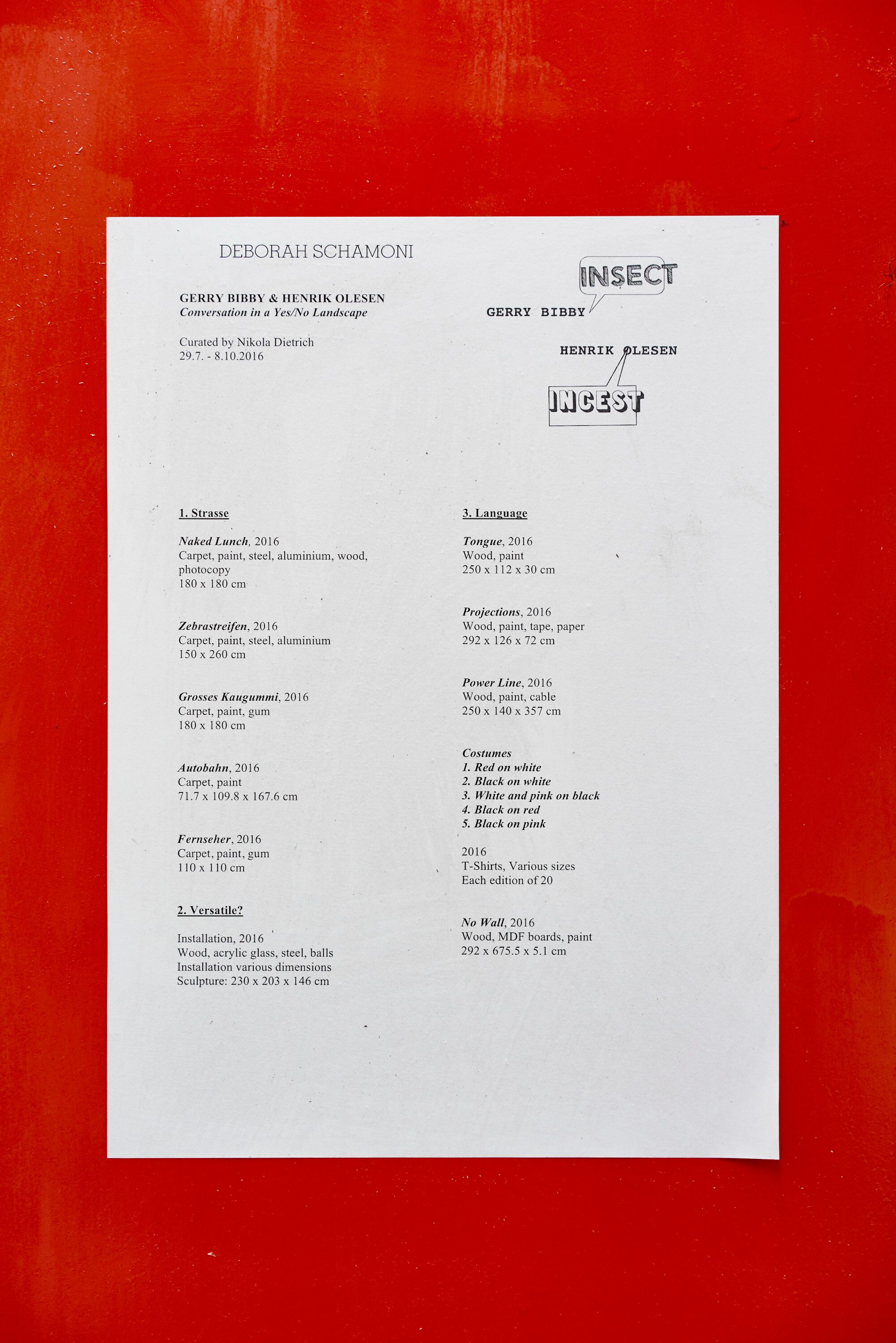
Gerry Bibby and Henrik Olesen, No Wall, 2016
Wood, MDF boards, paint, paper, 292 × 675.5 × 5 cm 